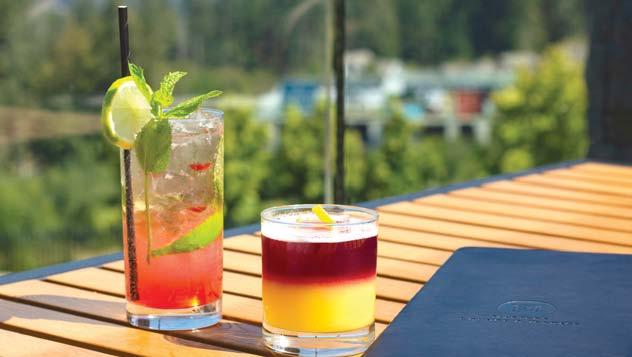
Soak in your summer. Visit us in the Cowichan Valley and enjoy our award-winning vegan wines.










Soak in your summer. Visit us in the Cowichan Valley and enjoy our award-winning vegan wines.








Summertime means eating al fresco, whether on one of our city’s many lovely outdoor patios or packing a picnic and heading to a park or beach. Two local businesses are making it easier to enjoy eating outdoors, with beautifully packed picnic tea baskets from the White Heather Tearoom (order online at whiteheather-tearoom.com) and ready-to-go cheese, charcuterie, vegetable and fruit boxes from Boom + Batten (order online at boomandbatten com).
Change is afoot over at Paul’s Motor Inn and by the time you read this, the iconic diner may already have reopened as Paul’s Diner by Fol Epi . Fol Epi owner Cliff Leir and Agrius chefs Max Durand and Scott Hopkins are overseeing the transition from classic diner fare to a new 21st century version, with traditional diner menu items being reimagined with local, organic ingredients. I can’t wait to try this. paulsdiner .ca
A new brewing company is coming to Market Square this summer. Whistle Buoy Brewing will be offering a tank to glass model which will allow people to get up close and personal with the brewing process and enjoy locally-made beer in an inclusive environment.
whistlebuoybrewing com
Fans of Langford’s Turmeric Indian Cuisine will be happy to hear that Tikka Bar by Turmeric has opened downtown on Broughton Street (formerly Pang). Family owned and operated, they are offering wraps, curry bowls and more. Open for lunch and dinner.
The Greater Victoria Chamber of Commerce is providing the opportunity to celebrate summer at one of Vancouver Island’s most beautiful lavender farms. Their Summer Social Series: Distillers Dinner at the Farm , is taking place July 3 from 6-9pm at Bliston Creek Farm, with a multi-course dinner and cocktails created by Sherringham Distillery. This event is 19+ only. Tickets must be purchased in advance. Visit victoriachamber ca /events for more information.

The Art Gallery of Greater Victoria is presenting a new series called What Artists Bring to the Table. This is a series of five workshops, running from July to November, facilitated by BC-based artists examining how food and eating can be a political and cultural act. The first event of the series will take place July 6 and features Vancouver-based artist Amanda Huynh. She and the workshop participants will be making “Diasporic Dumplings” together while discussing stories around food, race, and migration. aggv ca
Vegtoria! Victoria’s annual Veg Fest will be returning Centennial Square on July 20, from 11am-6pm.
Vegtoria is an annual festival that celebrates veganism, cruelty-free living, compassion and the environment in one fun-filled day. This day will be a celebration of vegan life with music, vendors, speakers, food and more.
vegtoria ca
One of my very favourite summer events is Summerdine, taking place at Sea Cider Farm and Ciderhouse from 5.30-8.30pm on Aug 15. Summerdine is a glorious celebration of women in the food and beverage industry. Last year’s event began with a champagne cocktail and appetizers in a magical wooded grove and continued with a sumptuous dinner served under a marquee. Courses were interspersed with inspiring talks from women in this incredible community. All funds raised support Scholarship and Outreach programs for women in the culinary arts and wine industries. Summerdine is hosted by the BC Chapter of Les Dames d’Escoffier International, an organization dedicated to improving women’s opportunities in the hospitality industry. Tickets available at www lesdames ca/summerdine
Vancouver Island’s Feast of Fields will be held at Snowdon House in North Saanich on Aug 25, from 1-4pm. Feast of Fields is a three hour wandering gourmet harvest festival that highlights the connections between farmers and chefs, fields and tables, and between farm folks and city folks. With a wine glass and linen napkin in hand, guests stroll across a farmer’s field, traveling from tent to tent (sometimes through the barn, past the tractor or around the chicken coop) listening to live music, and tasting gourmet creations from up to 50 of BC top chefs, farmers, fishers, ranchers, food artisans, vintners, brewers, distillers and other beverage producers. feastoffields com
The Flavour Trails North Saanich Food and Farm Festival is a celebratory rural ramble and feast of the senses. With dozens of venues and events to explore, there is something for everyone. Take a farm or winery tour, sample food, enjoy music and art, learn about regional indigenous harvesting, watch dog herding demonstrations and experience farm life past and present. Take in the weekend by bike or by car and meet the growers,
harvesters, fishers, vintners, chefs and producers that are creating an amazingly rich bounty right here in our own backyard. Takes place in August. flavourtrails com
Coming up in September is the 3rd annual Urban Food Garden Tour. The tour is a self-guided tour of 13 home gardens; back yards, front yards, allotments and boulevards. The tour is a fundraiser to raise awareness for sustainable food production, local and global and funds raised are divided between Haliburton Community Farm, 1UP- Single Parent Resource Centre (in the form of sponsored food boxes grown by farmers at Haliburton Farms, and Hleketani Community Garden in South Africa. www facebook com/victoriaurbanfoodgardens
Also in September, the Great Canadian Beer Festival returns to Royal Athletic Park. The Victoria Beer Society, will be hosting the 27th annual edition of Canada’s oldest beer festival. The two-day festival will run Sept 6 from 4 - 9pm and Sept 7 from 12- 5 pm. victoriabeersociety com
FoodRescue.ca is the creation of Second Harvest, Canada’s largest food rescue organization. FoodRescue.ca connects surplus food directly to social service organizations who will put it to great use. Donations support community initiatives, such as snacks for children’s after-school programs, meals for seniors, food for shelters and drop-in centres. Launched on Vancouver Island in June, FoodRescue.ca gives food donors a simple and fast system to connect directly with social service programs in local communities. foodrescue.ca
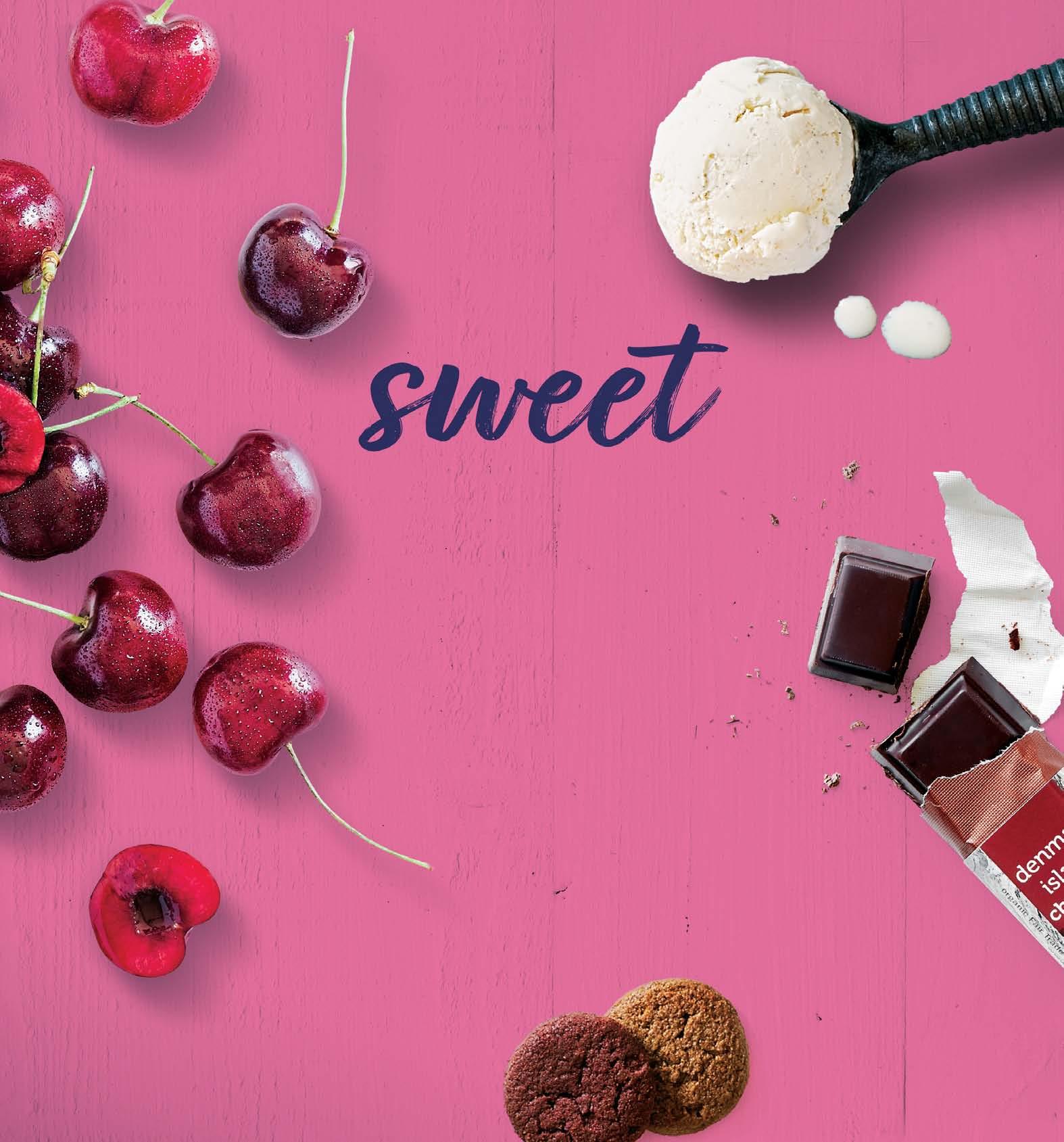
JULY / AUGUST
Crush – A Fine Wine Affair, The Belfry’s annual fine wine live auction is a remarkable theatrical experience itself! Hosted by auctioneer Roshan Vickery and sommelier and wine educator Earl Wilde. Enjoy wine and cider tastings, hors d’oeuvres, silent auction packages and gift certificates for every price bracket. October 20, Delta Ocean Pointe Resort. Join us for great party to support a great theatre. www belfry bc ca /crush
Visit eatmagazine.ca
and present
28 2019 SAVE THE DATE Eat
FOUNDER
Gary Hynes
PUBLISHER
Pacific Island Gourmet
EDITOR
Cynthia Annett-Hynes
EDITOR-AT-LARGE
Rebecca Wellman
CONTRIBUTING EDITOR
Carolyn Bateman
VANCOUVER CONTRIBUTING EDITOR
Julie Pegg
SENIOR WINE WRITER
Larry Arnold
LAYOUT AND DESIGN
Cynthia Annett-Hynes
PRODUCTION
Amanda Batchelor
the cover:
Orange Bliss
the Future BC’s
REGIONAL REPORTERS
Victoria, Rebecca Baugniet
Up Island, Kirsten Tyler
CONTRIBUTORS
Isabelle Bulota
Joseph Blake
Nate Caudle
Cinda Chavich
Jennifer Danter
Jacqueline Downey
Pam Durkin
STAY
eatmagazine.ca boomandbatten.com
Gillie Easdon
Sophie Fenlon
Deb Garlick
Lillie Louise Major
Denise Marchessault
Sherri Martin
Elizabeth Monk
Daniel Murphy
Daisy Orser
Elizabeth Nyland
Adrian Paradis
Adrien Sala
Shelora Sheldan
Johann Vincent
Rebecca Wellman
REGIONAL/NATIONAL ACCOUNT MANAGER
Susan Worrall
ADVERTISING ACCOUNT MANAGERS
Ron Metella
Sheena MacLeod
FACEBOOK/EATMAGAZINE

TWITTER/EATMAGAZINE
INSTAGRAM/EATMAG
For advertising and other inquiries:
PHONE
250-384-9042 / 778-350-6962
EMAIL editor@eatmagazine.ca sales@eatmagazine.ca
ONLINE
EatMagazine.ca
MAILING ADDRESS
Box 5225, Victoria, BC, V8R 6N4
STOCKISTS
EAT is delivered to over 200 pick-up locations in BC.

PRINTED IN CANADA
EAT® is a registered trademark.
No part of this publication may be reproduced, stored in a retrieval system, or transmitted, in any form or by any means, electronic, mechanical, photocopying, recording, or otherwise, without the prior written permission of Pacific Island Gourmet / EAT Magazine.
EST. 1999
for news and events from: COWICHAN VALLEY UP ISLAND TOFINO UCLUELET 5

Three delicious options for the mid-day meal just a quick dash from downtown.
524 ADMIRALS RD., JUST SOUTH OF ESQUIMALT ROAD, 250-384-3033
I love it when skilled chefs who have worked internationally set themselves up in a modest neighbourhood restaurant and feed locals fantastic food. This is the situation with Ken Yu at Vietnam Garden. Yu has worked at hotel restaurants in China and India, and even Nigeria, and also includes Vancouver’s Le Crocodile in his resumé.
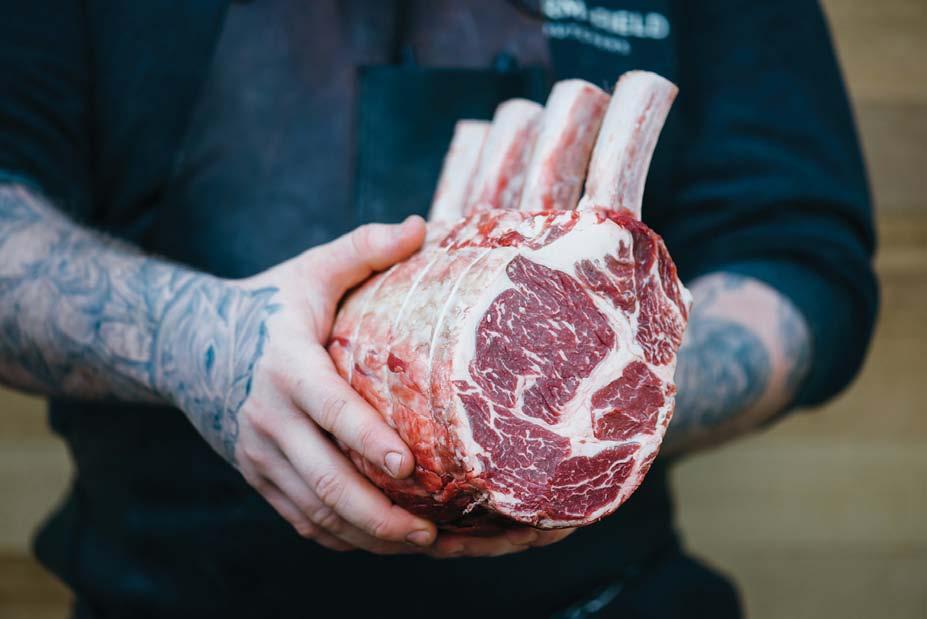
First comes soup. The Spicy Lemongrass Beef Soup for $11.95 is topped with paper-thin slices of raw brisket. The meaty broth, infused with cinnamon and star anise, is so hot the beef cooks the moment you stir it into your soup. The Vietnamese national dish of Caramel Fish for $13.95 is also a must-order. The basa is seared in a sauce of sugar, soy, fish sauce, onion, ginger, and garlic, and is presented sizzling
on a cast iron platter. Mixed in are snow peas, broccoli, and green peppers.
Yu’s international experience is reflected in the menu, which has other Asian dishes too. Before I came, an Esquimalt local commanded, “Order off the wall!” This is where I found the chef’s menu item of Malaysian Coconut Fried Rice. This fusion invention by the chef has Chinesestyle fried rice tossed with prawns, chicken, egg, and vegetables, with the Malaysian element of a sweet and spicy coconut sauce. This large platter costs $13.95.
There is only one thing I missed. Apparently Yu has a Nigerian soup recipe that he loves, so it appears, at random, in the specials. Nothing makes me happier than the quirk of a Vietnamese restaurant with a Nigerian soup, so I plan to keep visiting until I catch it.
Vietnam Garden is clearly a business about relationships.

When the restaurant was in Victoria, the owners became friends with artist Ted Harrison, to the point that they named their son after him. The other homage to the late artist is the joyous profusion of colourful art on one wall in their restaurant, much of it by the owner’s talented 12-year-old. Some of my favourite restaurants have that gift: making a customer feel like friend and family.
910 ESQUIMALT RD. NEAR HEAD STREET, 778-265-0434

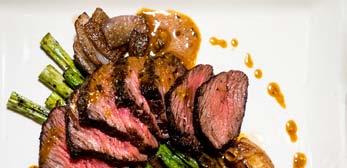

Esquimalt is equally lucky to have chef Kamlesh Kanwar, who recently opened Spice Valley and comes here after experience working at Sizzling Tandoor locally and The Fairmont Marriott in India. The buffet lunch, from 11 a.m. to 3 p.m., is a great way to taste-test the menu for the reasonable price of $13.99. On the Wednesday I went, the buffet offered seven different curries, pakora, and two desserts. Choosing a favourite here is like choosing between your children, but the Fish Coconut Curry was outstanding. Thick pieces of basa remained perfectly moist and flaky in a sauce that swirled from sweet to spicy in my mouth. The Bhindi Masala was fun to see on a buffet because okra, here simmered in a base of tomato, onion, and garlic, is not that common in Canada. The Mixed Vegetable Curry of cauliflower, peas, and cabbage had the taste of coriander, both roasted and crushed, popping in every mouthful. To calm the palate, a yogurt sauce is just the ticket. The Khadhi Pakora is chunks of pakora in a simple, slightly tangy, yogurt sauce.
Like every other Indian food fan I know, I’m of the opinion that butter chicken must be on a buffet to prevent disappointment. This one was very creamy and the chicken plentiful. The other buffet classic of tandoori chicken was mild but tasty, and a gorgeous red from the paprika. The surprise protein dish for me was the Channa Masala. The chickpeas in tomato sauce had a layered spice complexity where the cumin, ginger, and turmeric all surfaced.
A nice touch, which is really beyond expectations for a lunchtime buffet, is that when staff see customers coming in, they immediately tell the kitchen to put some naan in the tandoor, so bread is served hot and fresh.
This restaurant is a quick dash from downtown and clearly already a favourite with Esquimalt residents.

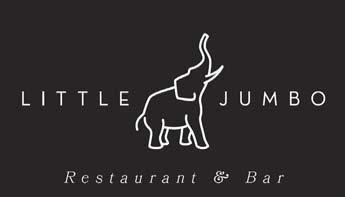



416 CRAIGFLOWER RD, NEAR RAYNOR AVENUE, 250-590-5727
Fry’s Bakery first appeared on Craigflower Road in the 1920s, and Fry’s Red Wheat Bread was first made in Saskatchewan in 1897. The current Fry’s Bakery stays true to its roots with organic flour milled on site, but there have also been updates—namely, wood-fired thin crust pizzas on Sundays. There is an almost cult-like following for these in the Craigflower neighbourhood, with the line-up starting at noon, and people cheerfully waiting half an hour at busy times. It was hard to choose between all the interesting toppings: the Rite of Spring has charred green garlic pesto, the Don Corleone has eggplant and marinated black olives, and the Pugliese has rosemary-flavoured onions. Despite all these seductive ingredients, my husband and I decided to share the more classic The Whole Beast for $19.50. The ingredients soar. The pepperoni is thick slices of 3 1⁄2 -inch sausage, the tomato sauce has its own tart and spicy personality, and the cheese is large dollops of Fior di Latte, a melty cow’s milk cheese from Australia.
Earlier in the day, you can grab a “Breakfast in Bed” for $6—an egg baked into a bed of pastry and topped with rosemary, onion, chopped bacon, and salsa verde. And all day, as long as they last, there are Meat Handpies for $5.50 and Veggie Handpies for $5. The fillings can vary, but they will definitely be fat and filling. My smoked pork and herbs meat pie made me feel as if I was in Quebec eating tourtière, and my vegetable one had firm black beluga lentils held together with soft creamed onions and parsnips.

There are three stools and a bench inside this small space, and two tables outside, so this is a place for getting friendly or you can take your food across the road to Banfield Park and have a picnic.
Want to make a difference and still meet your financial goals? Let us show you how using proactive Environmental, Social and Corporate Governance (ESG) standards can do just that. We’ve been doing it for years. Right here in Victoria.
Neil Chappell and Graham Isenegger are Investment Advisors and Portfolio Managers with the Blue Heron Advisory Group of CIBC Wood Gundy in Victoria BC. CIBC Wood Gundy is a division of CIBC World Markets Inc., a subsidiary of CIBC and a Member of the Canadian Investor Protection Fund and Investment Industry Regulatory Organization of Canada. CIBC Private Wealth Management consists of services provided by CIBC and certain of its subsidiaries, including CIBC Wood Gundy, a division of CIBC World Markets Inc. “CIBC Private Wealth Management” is a registered trademark of CIBC, used under license. “Wood Gundy” is a registered trademark of CIBC World Markets Inc. If you are currently a CIBC Wood Gundy client, please contact your Investment Advisor. Past performance may not be repeated and is not indicative of future results.

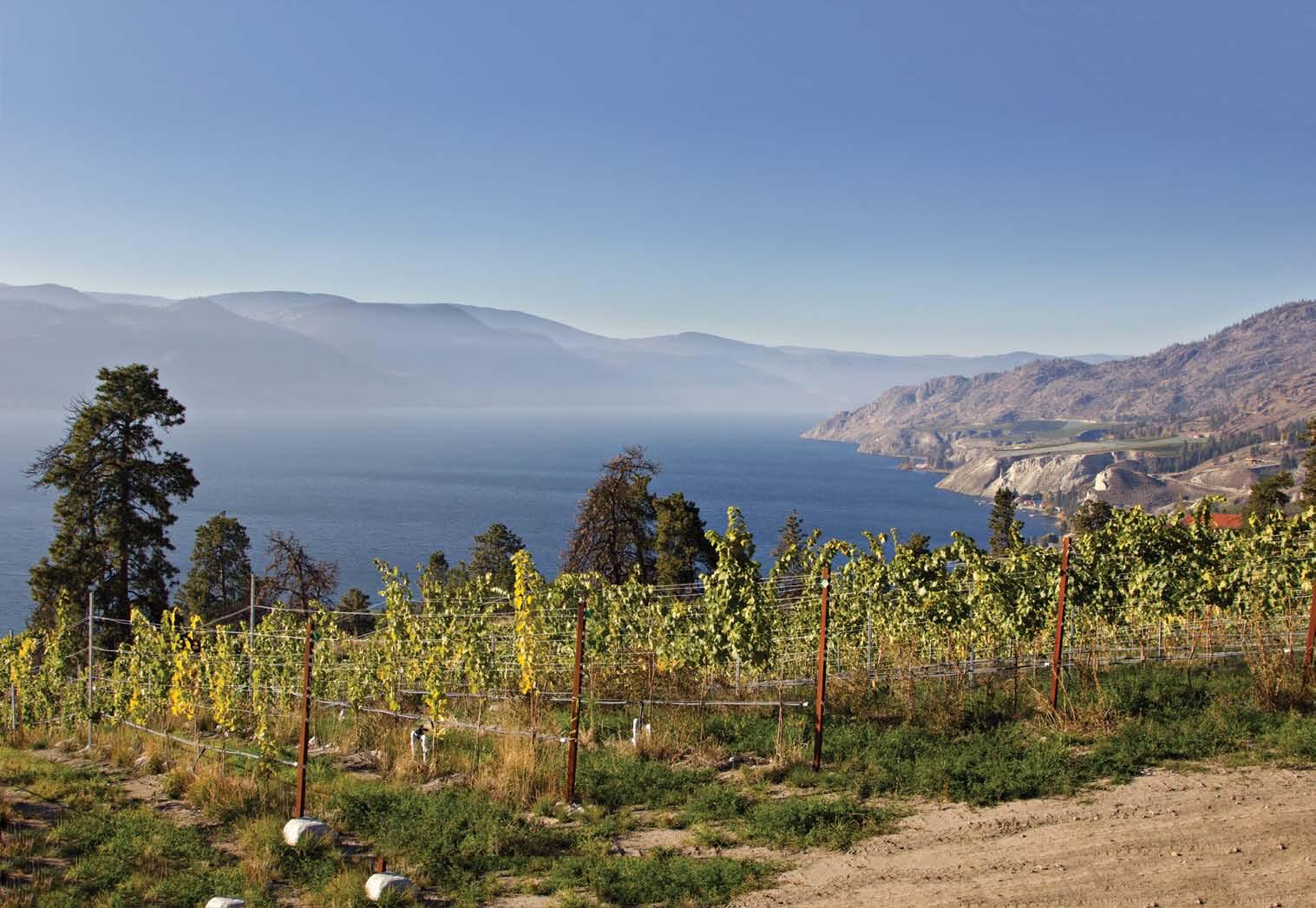




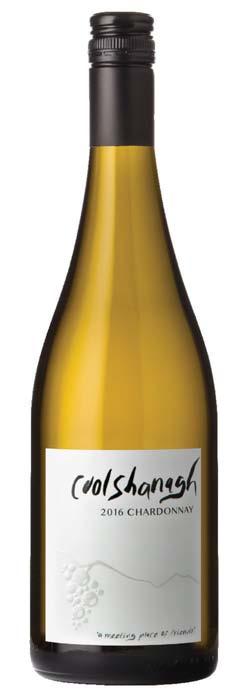







The queen of the BC stone fruits is the freestone peach. We sell more peaches each season than we do nectarines, plums, and apricots combined. Victorians put their money where their mouths are, and their mouths are on fresh, sweet, juicy, dripping peaches.

Now that your mouth is watering, let me tell you how long you have to wait. Though we see California stone fruits begin to trickle in in May, our beloved Okanagan crops won’t come to market until mid- to late-July. Every season unrolls at a different pace, and those few local farms that do boast a limited stone fruit season will be a little bit behind the Okanagan, in essence dragging out the season for our savouring. If you’re a canner or a jam maker, however, keep your eye on the markets and watch for case pricing to be at its best in early July for apricots, and mid-July for peaches. And if you have the patience of a saint, of course you’ll hold out for the freestone peaches.
If you’re an Island produce loyalist (three cheers for you!), plums seem to produce best here, but if you’re lucky, you’ll have a neighbour with a peach tree you can keep an eye on; start doing favours for the neighbour now, and hopefully they’ll think of you when the heat comes on and they have more fruit than they know what to do with.

If you’re keen and want to grow your own, it can be done, and fruit trees are readily available at local nurseries (look for columnar varieties or those that can be espaliered if you have limited space). Be sure to find out if your selection requires a pollinator before you go home with one treasured tree, and find it a sheltered, sunny (ideally south-facing) location in your garden. Essentially, if you have a nook in your garden that “feels like you’re in the Okanagan” when you close your eyes on sunny summer days, that’s where your stone fruit tree will thrive. You will need to love and nurture your tree (they don’t like our wet winters), but if you’re up for the challenge, the reward can’t be beat.


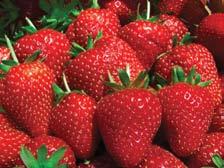
Back at the market, please skip the “squeeze test” and leave displays unbruised. Just give the fruit a sniff; if it’s fragrant and your mouth starts to water, it’s a good one. You’ll see occasional bumps, marks, and scarring on the flesh of some fruit, but just think of these as beauty marks; they may have grown nestled up against a branch or peeking out from under a leaf. It’s what’s on the inside that counts, and many of these marks, other than insect penetration, are not an indication that anything is amiss inside.
Once home, the options are boundless. If you have the patience to bypass eating ripe stone fruit out of hand, they’d love to grace your salad, your smoothie, your cake, crumble, and pie. Eat them with gratitude, and if you end up with a fruit bowl bursting with ripe fruit, remember your jam jars, your freezer, and dehydrator to make the most of the best flavours of summer.






The peaks and valleys of BC stone fruit season.
CHERRIES: Expected between the last week of June and the first week of July. Pricing will be a bit high at the start of the season but will balance out with cherries being fairly consistently available until September because of the different varieties grown with varying times of harvest.
APRICOTS: Expected between the first and second week of July. Apricots peak at the end of July (expect the best prices), but the season terminates quickly after that.
PEACHES: Expected in the latter half of July (first variety is Early Red Haven; you’ll have to wait for freestones), peaking in quality, volume, and savings in mid-August. So if you plan to do some canning, mark your calendars.

NECTARINES and PLUM VARIETIES:


Expected in the latter half of July and will peak in mid- to late-August.



EAT contributor Cinda Chavich joins a group of international food and travel writers in Australia to explore the exciting new food scene in Queensland, a seafood and surfer’s paradise halfway around the world. This is part one of a two part series.
(QUEENSLAND, AUSTRALIA) - Australia’s aboriginal people have a tradition of walking the landscape—hunting, foraging, and preserving this vast country’s native foods, from the dry deserts, lush rainforests, and surrounding seas.

Today, we’re tasting some of that local bounty with Aboriginal elder Lyndon Davis, forager Peter Hardwick, and top Queensland chefs Alastair Waddell and Zeb Gilbert. After a traditional greeting in his Gabi-Gabi language, Davis explains the deep connection Australia’s first people have to indigenous ingredients.
“I am a descendant of traditional custodians, and our heritage is to be caretakers of this place,” he told our group of visiting food experts. “We learn to hunt and gather in the right places, and in the right seasons, looking after the smallest to the largest insects and animals.”
Today’s lunch, at the elegant Wasabi restaurant in Noosa, on Australia’s Sunshine Coast, marries those local traditions with a modern farm-to-table ethos and Japanese aesthetic. Restaurant owner Danielle Gjestland describes her commitment to all things local—like the native bee “sugarbag” honey from her own farm that’s drizzled over a sliver of Llangothin goose breast, or the juicy pearls of Australian pink finger lime atop the barramundi cured with green ant gin and served with sweet, tender sea succulents.
It’s just one of the revelations on our “walkabout” across the state of Queensland, once known primarily for its broad surfing beaches, rugged ranchland, and coal mining but now emerging as a top destination for food lovers.
Noosa is a laid-back beach town, a “protected biosphere” where the tangled rainforest hugs the shoreline and surfers crowd the frothy breaks in the turquoise blue Pacific.
I’ve walked down from my comfortable condo hotel to the boardwalk that stretches from the coffee and gelato shops, boutiques, and bars along the main shopping street, out into the Noosa National Park. I’m in search of koalas. While that iconic animal remains elusive, there are other sights, sounds, and flavours to explore, including good coffee and toasted banana bread at the park office/café.
I follow the advice on park interpretive panels to “exercise your senses—look, feel, listen, and imagine—as you stroll along the walking tracks.” I scan the towering rainforest canopy as noisy pittas swoop among knotty vines, admire the views from rocky cliffs, and silently thank the people who lobbied to preserve this spectacular wild headland from development.
That outdoorsy vibe runs deep in this section of the Sunshine Coast, a place popular with families and retirees alike, and where strolling, cycling, paddle boarding, and surfing are the preferred modes of transport.
It’s on the plate, too: native rainforest fruits like Davidson (Ooray) plums, lilly pilly berries, tamarind, tropical spanner crabs, pearl perch, and Moreton Bay bugs.
Dinner aboard the M.V. Catalina is a private floating party, with fine Australian wine and coastal cuisine. Tonight celebrity chef Matt Sinclair is cooking specialties from his new Sum Yung Guys, a casual spot (just up the coast in Sunshine Beach) that’s making waves with its locally and southeast Asian-inspired menu. Sinclair is here for the annual Noosa Food & Wine Festival, one of the country’s premier food events. Like many young chefs, he’s left the big city for the coastal lifestyle.
“Chefs who have young families have had a big influence on the emerging food culture in Queensland,” he tells me. “The Sunshine Coast is not the hustle and bustle of the city but it’s the whole package—people are food-obsessed up here and the spotlight is starting to shift away from the larger centres.”
Access to fresh, seasonal ingredients is exceptional here, too, he explains, delivering a grilled “toastie” starter filled with creamy spanner crab salad and scented with locally grown lemongrass, green chili, and kaffir lime. A charred kebab of organic Australian Kobe beef short rib with sesame cream and roasted rice follows, and the inspired fusion continues with lightly smoked Mooloolaba mackerel topped with cherry tomatoes and Thai basil in a creamy red curry sauce. A crispy piece of ghee-fried roti—“a flagship at the restaurant”—makes the perfect foil for Sinclair’s food, which is inspired, like so much else in OZ, by the cuisines of Thailand, Malaysia, Vietnam, China, Korea, and Japan.
The M.V. Catalina has been plying these coastal waters for 30 years but, thanks to a recent overhaul, now has two stylish decks from which to enjoy drinks and dinner while cruising Noosa’s calm river estuaries. Tim Norris, one of the boat’s new owners, says it was relaunched in January 2019 as a floating event space for weddings, parties, and special dinners.
It also has a well-stocked bar. A feature is their bespoke Catalina gin, created by Australia’s Applewood craft distillery and featuring local botanicals including juniper, mango, coconut, and Australian cut leaf mint.
It’s all part of the culinary scene on the Sunshine Coast. From new breweries, cafés, and beautiful bread shops to elegant beachfront restaurants, like the top-rated Wasabi, Noosa is one of the country’s hottest food destinations.

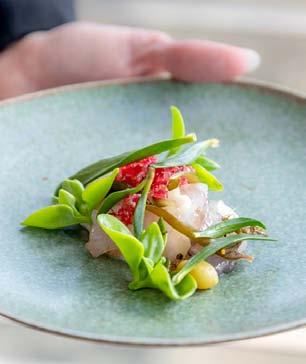
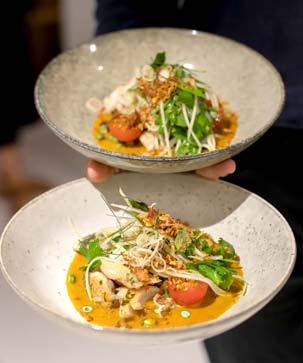
Head inland from the coast and you’ll find Australia’s “hinterland,” an agricultural area dotted with dairies and cattle ranches, fruit, nut, and vegetable farms, country inns, and destination dining. From Noosa, we drive west, through steep forested hills and deep valleys to the source of this part of Queensland’s seasonal pantry.
Hinterland Feijoas is named for the dark green fruit of the Acca sellowiana, and an orchard of 750 of these small myrtle-like trees is at the centre of this organic, Slow Food farm.
Though the fresh fruit is picked in March, they also produce a line of feijoa jams, chutneys and feijoa balsamic glazes for sale from their farm shop. After an orchard tour, our lunch includes a tender braise of local pork with fennel and this creamy tropical fruit melting into the sauce, and a dessert featuring layers of hazelnut meringues and seasonal fruits. At The Falls Farm, Melbourne star chef Matt Wilkinson walks us through some of his favourite local ingredients, from tiny wild bananas, yuzu, and finger limes, to red okra, creamy Japanese turnips, heirloom carrots, tiny Thai pea eggplant, and giant watermelon radishes.
“You can wrap a whole pig in banana leaves, finger limes are wonderful in sorbets or G&Ts, and these Hakuri turnips are beautiful just lightly sautéed in foaming butter,” says Wilkinson as we traverse the lush garden, nibbling a variety of unusual plants. “Sorrel is the perfect partner to any fish dish. We serve native worrigal greens (New Zealand spinach) with skate and lots of butter.”
This park-like market garden supplies chefs throughout the region. It is a joy, says Christine Ballinger, the green thumb who runs the farm with Val Huddart and her husband Peter, and their children, to cater to the whims of Queensland’s top culinary creatives. Beyond heirloom vegetables and tropical fruits, there are wild flavours—rosella for jams, tamarind, and mountain pepper.
“The chefs at Bang Bang restaurant took these, sliced them paper-thin with a mandoline, then candied them in a sugar confit,” says Ballinger, brandishing a gnarly Buddha’s hand lemon with its yellow skin and twisted “fingers.” She grows several varieties of sorrel, riberry, and native hibiscus as well as supplying “every part of the plant” to chefs embracing the root-to-shoot ethos.
The farm, surrounded by shadowy stands of towering gum trees, borders a national park filled with native birds that Peter says are the biggest challenge to their 34-acre organic operation. But it’s also a beautiful blessing. It’s hard to imagine the rolling gardens were once a mass of invasive weeds that took 18 months to clear before the property was planted.
Like many Australian chefs, Wilkinson comes to Noosa to celebrate local food at the annual food and wine festival, this year hosting the Gin Pig event and featuring pork that has been fed the leftover botanicals from Australia’s Four Pillars Gin. His “gin pig” sausage roll features gin butter puff pastry, freeze-dried gin vinegar, and a sauce made with Japanese Kazume red apple, another Four Pillars product.
When he’s not celebrating the food of Queensland, Wilkinson is overseeing his Melbournebased food empire, from his famed Pope Joan restaurant to The Pie Shop (featuring savoury pies like his number one selling wallaby, black pepper, and cheese pie), his food writing and award-winning cookbooks focused on his vegetable-forward cuisine.
MATT SINCLAIR'S FISH CURRY ABOARD THE MV CATALINA AUSTRALIAN PINK FINGER LIME PEARLS ATOP BARRAMUNDI AT WASABI RESTAURANT IN NOOSA

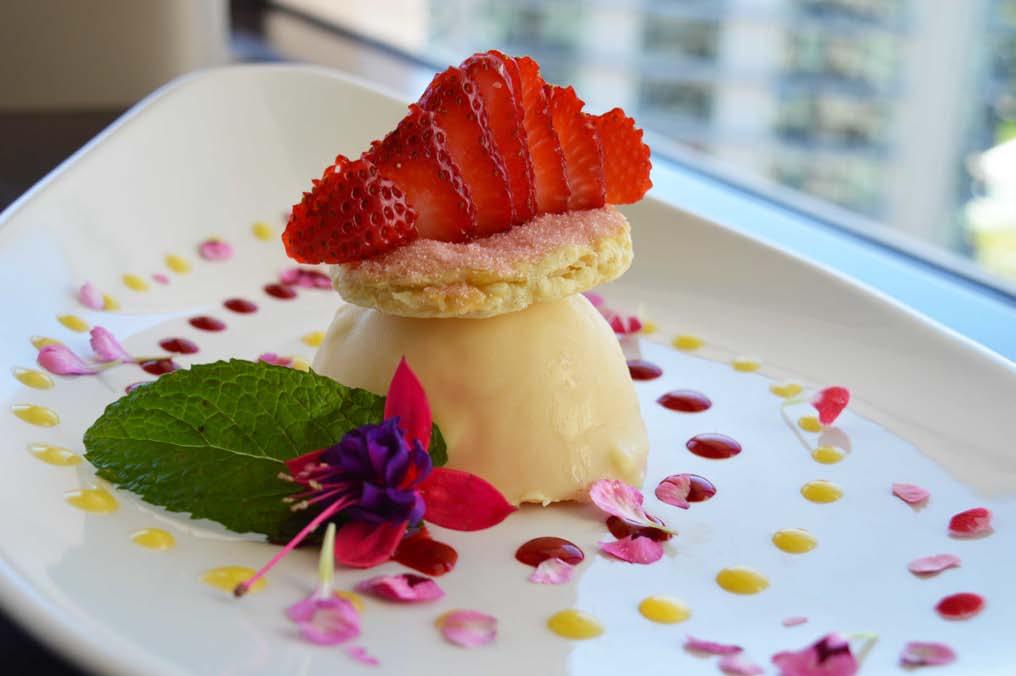


Our paddock-to-plate explorations continue in the high country just beyond Brisbane where a helicopter drops us at Spicers Hidden Vale, a luxury camp resort set in 12,000 acres of Australian bush in a former working cattle station, just a one-hour drive by car to Brisbane. Though the historic ranch house burned in a recent fire (and is now being rebuilt), the chefs have regrouped to create their hyper-local Homage Restaurant in a collection of rustic outbuildings surrounded by kitchen gardens and outdoor wood-fired grills.
The Lockyer Valley boasts some of the most fertile soils in the southern hemisphere and is dubbed “Australia’s salad bowl.” And with their own livestock, orchards, and honey, plus additional ingredients drawn from farms within a 60-kilometre radius, this is seasonal Australian cuisine at its best. A chef tours us through their gardens, the little pickling and preserving shed, and the freestanding smokehouse that’s used to smoke everything from garlic and beets to butter. Then we retire to a large communal table, set in a former stable, to dine.
The highlight of our memorable meal is a tender piece of beef sirloin wrapped in a salty dough of hay and milk powder, and blackened in the 1200-degree wood oven for just 18 minutes, emerging perfectly seasoned, rare, and juicy. But there’s also a pretty starter of compressed cucumber with pink beet purée, grilled Barcoo grunter (freshwater perch) with fermented whole grain, and lightly pickled Murray cod in a brined lettuce wrap with a dusting of dried caper “soil.”
While kangaroo are apparently as common here as urban deer in Canada (one local described groups gathering on her suburban street corner like gossipy neighbours), the only version of wild “roo” I have encountered thus far is the tender morsel on the plate at Wasabi, cooked medium rare over smoky cherry wood and reminiscent of venison. But here at Homage, the kangaroo comes in the form of a sausage, seasoned with native pepper and bathed in Vegemite onion gravy.
It’s all part of the wild, foraged, and farm-to-table food scene in rural Queensland – creative cuisine from top chefs, half a world and a hemisphere away!

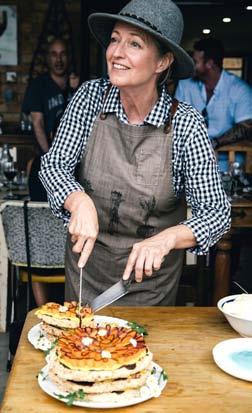
Stay tuned for Part Two of Cinda Chavich’s Down Under Walkabout in the next issue of EAT, a tasty tour of Brisbane and the urbane beach vibe of the Gold Coast.



 fromagerie . bistro. wine bar
DESSERT AT HINTERLAND FEIJOAS
fromagerie . bistro. wine bar
DESSERT AT HINTERLAND FEIJOAS
When I say I don’t have a sweet tooth, I mean I don’t like to taste a direct hit of sugar. Not in coffee. Not in hot or iced tea. Not in soft drinks. Definitely not in cakes, cookies, pies, pastries, and puddings. I’m also one of a rare breed for whom chocolate does little unless there’s a square or two of dark chocolate spiked with chili pepper or sea salt kicking about.
For me, sweet things need to be mitigated by the bitter or savoury—even fresh fruits. Give me ripe strawberries sprinkled with cracked black pepper or an apple with a smattering of coarse sea salt. A wee dusting of cayenne and a squeeze of lime on a juicy melon is a perkme-up on a meltingly hot afternoon, and a grilled peach or pear’s caramelized notes get the perfect uplift from a dollop of tart crème fraiche. (Creme fraiche is easily approximated at
home by whisking together cultured buttermilk and heavy cream, pouring the mixture into a glass jar, and covering with cheesecloth to let rest at room temperature for 24 hours. Stir it. Screw the lid back on the jar, and chill another 24 hours before using.)
Espresso gelato gets my vote for summer ices. Affogato, though, which is simply a scoop or two of ice-cold vanilla gelato “drowned” in a pool of piping hot espresso, is even better.
Puddings infused with a hint of the exotic speak to me too, especially when they are spiked with saffron or cardamom. Take rice pudding, for instance. My childhood association with rice pudding (along with tapioca) was the stuff of boarding school lunches, or the sick bed, unless it was my mother’s baked, rich, grainy pudding whose crackly golden crust was my favourite part of the dish. A long hiatus between rice puddings ensued.
Then an East Indian friend brought me a container filled with luscious, creamy, cardamom rice pudding. I followed up with a Yotam Ottolenghi recipe from Jerusalem, where the noted Israeli-English chef embellishes rice, cream, milk (whole and condensed), and cardamom. The addition of pistachios and rosewater turns the entire lot into a silky, perfumed lusciousness. What’s more, it only calls for a tablespoon of honey. Floral and citrus flavours linger deliciously on the tongue, along with a touch of eucalyptus. (A taste reminiscent of camphor and menthol are often mentioned when referring to cardamom.) The pudding is marvellous in hot weather when served chilled and drizzled with lightly sweet rosewater syrup. I like it for breakfast.
More often than not, I opt for the cheese course following a meal. I admit, however, to the lure of a French tarte citron, that lemoniest of lemon “pies.” And I’m all for a slice of apricot labneh (strained yogurt) tart with its dusting of pink peppercorns, a recipe I found in an April 2016 issue of Style at Home.
Then there’s the occasional ginger snap with tea mid-afternoon, or a coffee and crunchy biscotti. But an anise-anointed pizzelle accompanied by an espresso lungo is a hands-down winner for me. I was first introduced to the thin, waffle-like pastries via my sister’s Italian in-laws. The DeClericos hail from Abruzzi, which is the region where pizzelle originated. Rena’s pizzelle were feather-light, sharpened by a respectful measure of anise, and made on a traditional pizza iron usually patterned with flowers or snowflakes.
Rena, now in her eighties, no longer makes pizzelle, but her daughter, Tina, carries on the tradition. (I am uncertain whether she has “upgraded” to a modern electric iron or took over her mother’s. I suspect the latter.) Like so many recipes, hers is one passed down through the family, often by word of mouth, and calls for “as much flour as it takes.” Via the more modern text messaging, my sister forwarded me Tina’s method, which is “open to modification” as it makes 36 pizzelle. The simple batter consists of four large eggs, 1⁄4 cup sugar, 3⁄4 cup light olive oil, 1⁄4 cup anise extract (a little lemon rind or vanilla extract added is nice too) and 2 cups flour. (Gluten intolerant folk can use chestnut flour.) The mixture is sparingly spooned, as you would waffle batter, onto a greased pizzelle maker and cooked a mere 20 seconds a side.
In an afternote, Tina is more definite. It relates to precisely what she and her mother do not do. “Some people use butter. We don’t. Some people use baking powder. We don’t. Some people sprinkle confectioner’s sugar on them. We don’t. And we don’t like them dark like the many pizzelle you find in the stores.” Whatever is or isn’t in the Rena/Tina’s pizzelle, the result is perfect. Pizzelle right off the iron is malleable enough to roll into a cylinder for stuffing with sweet ricotta much like a cannoli. I prefer to dunk a pizzelle into affogato. It’s the perfect combination of cream, bitter, and savoury. Sweet!
For a recipe that most closely resembles Rena’s (and is perhaps more precise) go to www nonnabox com/authentic- italian - pizzelle- recipe (makes 10 pizzelle).



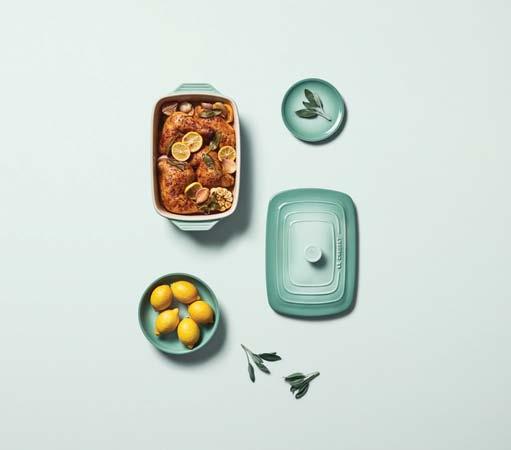
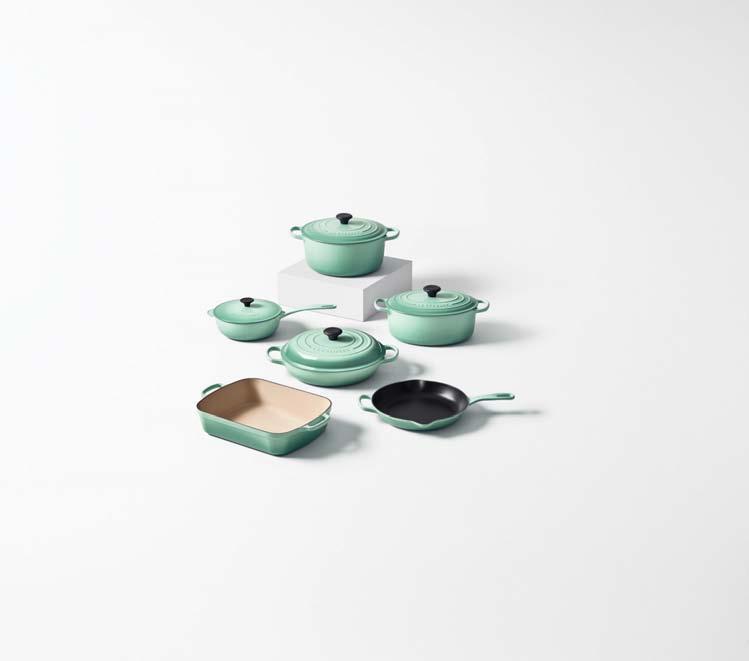
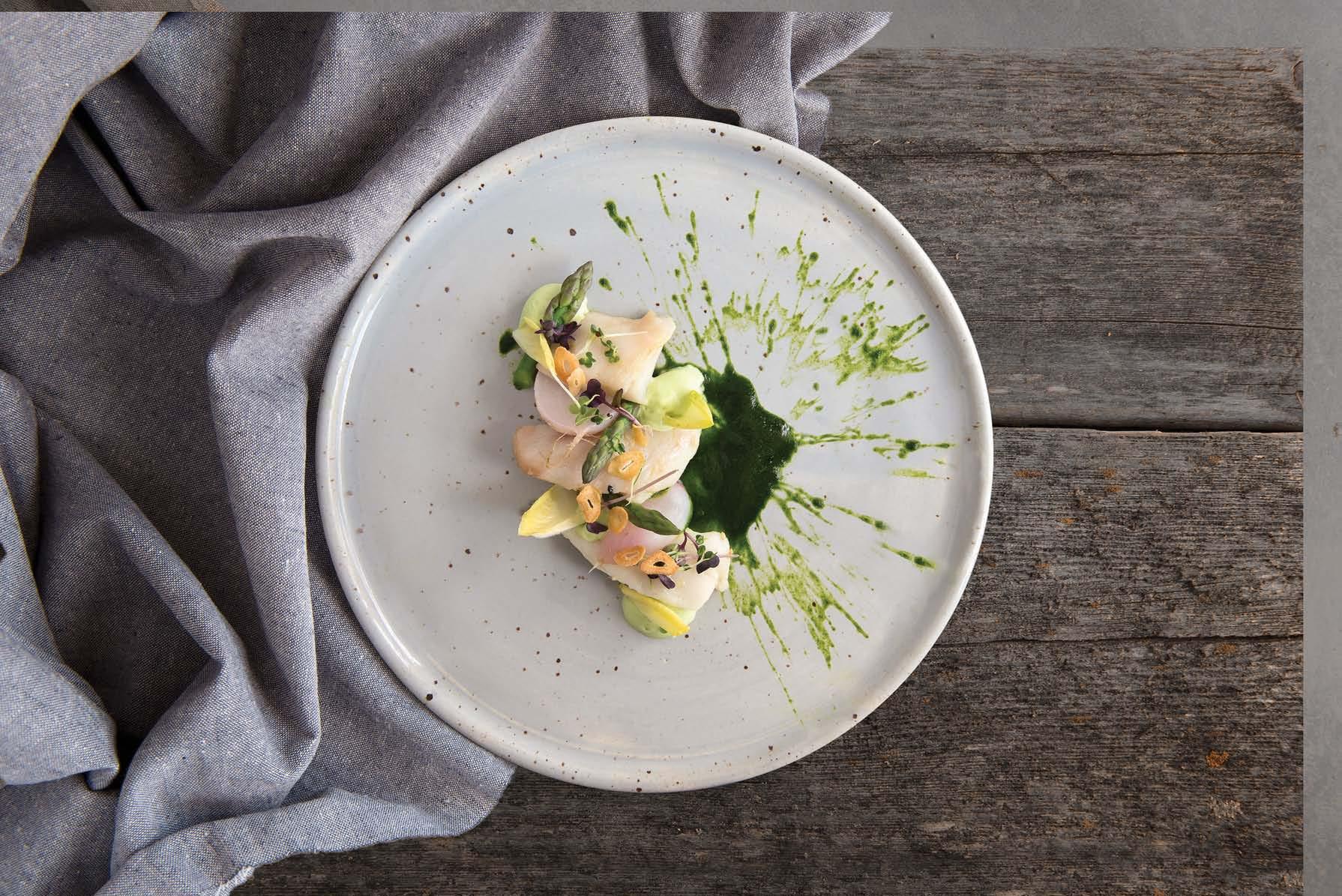
We offer local, natural meat that connects farmers who care about animals with people who care about food.
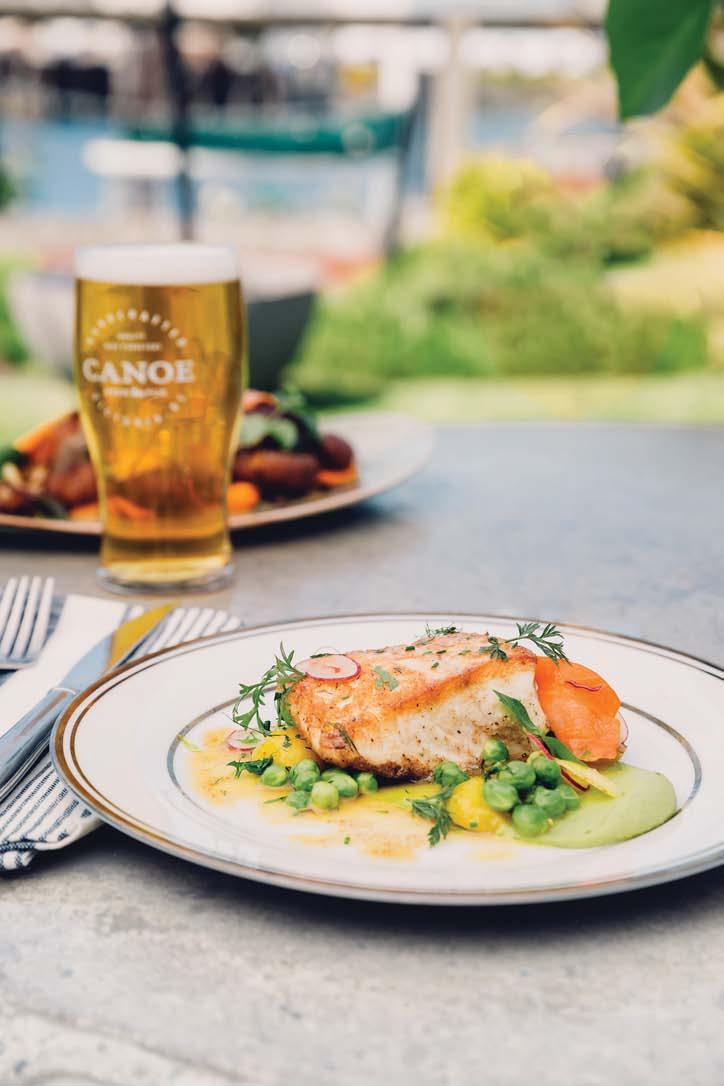


WWW.TWORIVERSMEATS.CA | 180 DONAGHY AVE N. VANCOUVER
 RESTAURANT & RETAIL SUPPLIER ACROSS BC
RESTAURANT & RETAIL SUPPLIER ACROSS BC
Boom + Batten
Frankie We Salute You!
Paul’s Diner by Fol Epi
Burger Crush
WORDS
Gillie Easdon

Shelora Sheldan
Daniel Murphy
Adrien Sala
PHOTOGRAPHY
Lillie Louise Major
Bill Blair
Johann Vincent
BOOM + BATTENThe new bar, café, and restaurant with forno oven and open kitchen has the city’s best views of the Inner Harbour.


Strolling along the Songhees Westsong Walkway, enjoying the sun as it flickers off the waves, I approach Boom + Batten. Perched on the water, the exterior of Victoria’s newest and most anticipated restaurant and café reminds me of the graceful lacy fungus found low on ancient cedars. The adjacent Victoria International Marina, full-service luxury yacht centre, and moorage reflect the same organic aesthetic. I slide in front of the grey construction fence to enter the building, as Boom + Batten is not yet open when I visit in late May.
The room is pumping with photographers and chefs, bartenders and managers, public relations and marketing staff, and a few models of various ages who gather at the far side of the sleek bar for a photo shoot. “[It was] a full team collaboration,” says Paul Simpson, president of Boom + Batten, from Steelhead Design’s Kevin Frost and Nygaard Interiors’ Sandy Nygaard. The masterful design presents a dynamic space with specific areas for bar, booth, café, and table seating, designed so everyone has a water view. The open kitchen is spotless and humming with chefs. The forno oven blazes. Struck at once by this stunning and very welcoming place, I reflect how many situations it would suit: date, birthday, solo read of a book, business lunch, family dinner, girlfriend catch-up, friends in town, anniversary, pizza with my son … The list goes on. It’s a beautiful and carefully planned-out space.
“Opening this is a once-in-a-lifetime opportunity,” shares executive chef Sam Harris. No stranger to launches, he was at the helm of both the award-winning Agrius and The Courtenay Room when they opened. The first “great restaurant” he worked at was John Taylor’s Domus Café in Ottawa, “a seasonal restaurant before anyone cared about that. For me, it was a revelation.” Chef Harris also spent time at Bishop’s in Vancouver. Focused on “ingredient-forward flavour clarity and irreducible complexity,” he stresses that Boom + Batten’s food will find its stride in local fare that reflects not only the sea but also the wealth of flavours we enjoy on the island. Reading over the expansive menu, I’m struck by its range of offerings: scallop crudo with pickled beet citrus vinaigrette; chimichurri and crispy chicken skin; mussels with peas, glass noodles and aubergine; Snake River wagyu beef, and unique takes on classics such as a duck Bolognese.
“We have a great bar program, and it’s really casual and accessible. People will just drop by for a pint and a pizza.” Pointing to the wood-fired oven, Harris talks about perfecting his pizza-making in Los Angeles at VPN Americas. The Associazione Vera Pizza Napoletana is an international association giving special designation to pizzerias that meet and respect the traditions of Neapolitan pizza making. “Dungeness crab pizza?” he offers as an example. Um, per piacere, yes, I would like to eat that with a pint of beer or a glass of wine, thank you, grazie
Boom + Batten brings together three industry professionals. The executive culinary team is composed of executive chef Sam Harris, pastry chef Dominique Laurencelle, and chef de cuisine Dion Ouellet. “We have an amazing team,” says Laurencelle. Her last five summers were spent as head pastry chef at Langara Island Lodge, a fishing lodge in Haida Gwaii. Other notables include time as head pastry chef at Quail’s Gate Winery in Kelowna and La Rua in Whistler with some time at Bearfoot Bistro to hone her passion and craft.
“I like to change classics up a bit, shuffle them up, but not too much.” What about a classic crème brûlée, I ask, protective of my “maybe dated never faded” favourite.
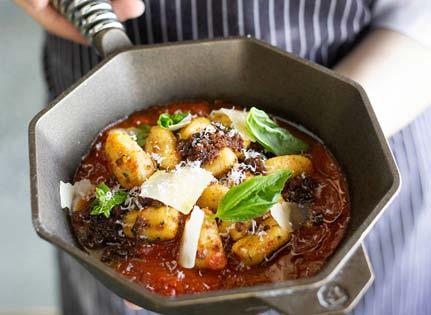
“My take is a baked yogurt with roasted oranges, fennel and granola. No hard top.” That sounds pretty good, and enough of a departure to stand on its own. “Would you like to try it?” Laurencelle asks. Hell yes—please. She beams and wanders back to the kitchen. “I love to feed people.” The baked yogurt is beautiful—pale white, with a crescent moon shape of a few sweet, roasted orange slices, fennel fronds, and the restaurant’s delicate, handmade anise granola gives a bit of crunch and texture. The baked yogurt gives me the similarly blissful pause of a crème brûlée—custardy, sweet, with a hint of tang, and exquisite. What else could we anticipate from chef Laurencelle?
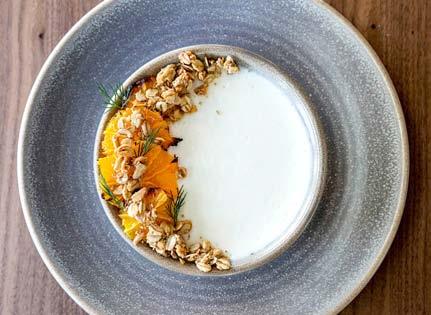 2 PAUL KANE PLACE, VICTORIA 250-940-5850 BOOMANDBATTEN.COM
ETIENNE, HEAD BARISTA, AND PATRICK, CAFE MANAGER, ARE ALL SMILES
BAKED YOGURT TOPPED WITH ROASTED ORANGES, GRANOLA, FENNEL POLLEN GNOCCHI WITH CRISPY PROSCIUTTO ARRABIATA, SAN MARZANO TOMATOES, BASIL, PARMESAN CHOCOLATE MOUSSE - CRUNCHY HAZELNUT BASE, MALT CHOCOLATE CARAMEL, MALT ICE CREAM
LILLIE LOUISE MAJOR LILLIE LOUISE MAJOR
LILLIE LOUISE MAJOR
LILLIE LOUISE MAJOR
2 PAUL KANE PLACE, VICTORIA 250-940-5850 BOOMANDBATTEN.COM
ETIENNE, HEAD BARISTA, AND PATRICK, CAFE MANAGER, ARE ALL SMILES
BAKED YOGURT TOPPED WITH ROASTED ORANGES, GRANOLA, FENNEL POLLEN GNOCCHI WITH CRISPY PROSCIUTTO ARRABIATA, SAN MARZANO TOMATOES, BASIL, PARMESAN CHOCOLATE MOUSSE - CRUNCHY HAZELNUT BASE, MALT CHOCOLATE CARAMEL, MALT ICE CREAM
LILLIE LOUISE MAJOR LILLIE LOUISE MAJOR
LILLIE LOUISE MAJOR
LILLIE LOUISE MAJOR
“I’m excited to share old family recipes, like jambusters, which are Manitoba’s jelly doughnuts. We’ll make them from scratch with in-house jam. Fresh, fluffy, and sweet. We’ll serve them for happy hour.” Her warmth, zeal, and evident passion for both the traditionally fancy and the deliciously down-home bodes well for Victoria dessert and pastry lovers.
Chef de cuisine Dion Ouellet’s role at Boom + Batten is day-to-day operations and menu development with executive chef Sam Harris. Ouellet’s culinary path started young with much early success at Vancouver’s The Metropolitan and opening the much acclaimed Westin Wall Centre at the Vancouver Airport with chef Hamid Salimian. His recent Victoria experience has been at Truffles Catering, Stage Wine Bar, and 10 Acres. He is reputed for his meticulous understanding of how elements and flavours go together in all dishes, simple to complex.
Boom + Batten is a place to celebrate, create, indulge, enjoy, and relax. It is also, bar none, the best view of Victoria’s Inner Harbour; you are right on the water. But it is also a place for budding chefs to learn. The executive culinary team is committed to developing a learning environment and mentoring cooks through an in-house apprenticeship program. Boom + Batten will be “a place where young cooks come to learn and where we can cultivate the talent and dining experiences to remember and celebrate here in Victoria,” explains Ouellet. Chef Michel Pelletier, corporate chef for Boom + Batten, Glo, and Med Grill will be overseeing the apprenticeship program.

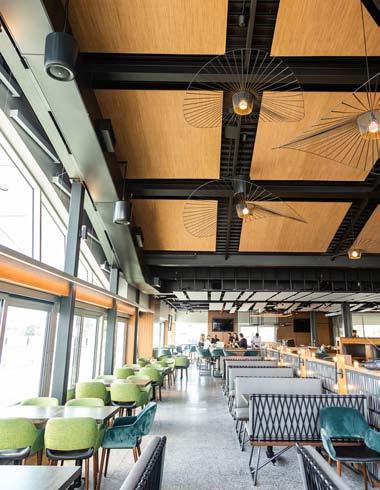

Sitting on a bar stool, enjoying the last few spoonfuls of baked yogurt, I look around the room—from the lampshades emulating sea life to the aquatic colour scheme, to the mid-century modern style chairs, the porthole art pieces throughout the space, and, of course, the view. It feels much more “cosmopolitan casual” than Victoria, more like a harbourside bar in Sydney, Australia, where I have enjoyed a glass or two. Boom + Batten has set the stage for chill and delicious in an understated yet opulent venue.
GILLIE EASDONVegetables have long gone from something on the side to being featured front and centre. Vegetarians, and vegans too, have moved from subcultural set to mainstream. And fast food giants and restaurant chains are scrambling to launch menu items that appeal to this rapidly growing dietary movement.

The grilled vegetable stacks and stuffed Portobello mushroom caps of old are gone. Those menu afterthoughts were offered to appease the vegetarian at the table. Instead, dishes are being created not to appease but to entice, inspire, and satiate with fresh, innovative ingredients and thoughtful cooking.
Right on point is Frankie We Salute You! the newly opened, plant-based restaurant in Kelowna. Using up-to-the-minute techniques to delicious effect, chef Brian Skinner is taking the once lowly vegetable to new heights.
Skinner and his wife and business partner Christina bring a solid and impressive restaurant history to the restaurant they opened this past May. Brian began his culinary trajectory at age 14 working in restaurant kitchens, then trained at Vancouver Community College, followed by a Red Seal apprenticeship at the famed Bin 942. After five years cooking in the UK, he opened the vegetarian-focused The Acorn Restaurant in Vancouver in 2014. Several awards and accolades later—including winning gold at the competitive Gold Medal Plates in Victoria—his place was solidified as a plant-based chef of note.
Christina Skinner also provides a powerhouse of experience, from back to front of house, including host at the high-powered Cioppino’s in Vancouver and, in the UK, a luxury fine dining airline concept complete with silver service, as well as communications and copywriting for restaurants.
The two have been planning to open their own room since selling their share of the award-winning The Acorn in 2014.

The name chosen for their new venture is literally a salute to their grandfathers, both named Frankie. Both men were incredible gardeners and noted horticulturalists.
The new 60-seat space, housed in a former VW dealership garage, is filled with light and colour and features a modern, minimalist aesthetic overseen by Vancouver design firm Studio Roslyn (responsible for Victoria’s Superbaba restaurant and the Parsonage Café).
The menu created by the couple is divided into starters and share plates, salads and mains with exceptional ingredient-sourcing throughout. This fact also sealed the deal for the chef.
“The East Coast has lobster, the West Coast Dungeness crab, and Alberta has beef,” says Skinner. “Where are the vegetables? They’re right here!” he asserts, referring to the astonishing Penticton Farmers’ Market and the close proximity of organic farmers, wineries, and other makers and foragers to their new restaurant.
While many chefs boast that they “let the ingredients speak for themselves,” Skinner gives those ingredients a new voice. Infused salts and oils, grilling, roasting, fermenting, and dehydrating elevate and enhance flavours, coupled with aromatics to add layers that are balanced, inventive, and incredibly delicious.
22 J ULY/AUGUST 2019
The main events continue the superfood celebration with firstof-the-season grilled asparagus on organic corn tortillas with Cotija cheese, pickled chilies, and a charred corn salsa.

“Cooking fresh and in-season, you’re one step ahead,” explains Skinner. “It’s not hard to make delicious food when it’s so close to home.” That seasonal asparagus also plays into the hefty Malaysian-inspired laksa, a deeply satisfying and colourful bowl of rice noodles in a coconut turmeric broth crowned with a pink egg—a play on the traditional soy sauce egg, this time soaked in beet juice. Asparagus is replaced by summer romano beans and, in the fall, red kuri squash, both sourced from the Skinners’ extensive urban garden.
Another “salute” goes out to the Korean culinary playbook, a cuisine Skinner loves for its celebration of umami. He translates that into the restaurant’s Bulgogi Mushrooms dish. Oyster mushrooms from local purveyor What the Fungus, with a texture akin to scallops, are first marinated in soy and ginger. Served with a rectangular cake of crispy sticky rice, grilled greens, and a white kimchi salad, it’s surrounded by ssamjang sauce—a sweetsavoury-umami bomb that ties the whole dish together.
For libations, find a tidy curated list of Okanagan natural and organic wines, craft brews, house-made lemonades, fresh juices, kombucha, and a few creative cocktails. For example, the locally grown tart-and-tangy haksup berry gets a star turn in a sour made with Okanagan Spirits Craft Distillery bourbon-style whisky. And honeydew melon works wonders for the house margarita.

At the lunch hour, find several speedy grab-and-go options in the fridge, such as stacked golden beet and veg sandwiches on grilled sourdough, salad and tempeh wraps offered with house-made lemonade for a refreshing pick-me-up, or book a table for hot sandwiches made with melted vegan cheese.
“I’m cooking food that I want to eat,” admits Skinner. “I’m feeding people food that we feed our friends and family.” And for that, we salute you.


SHELORA SHELDAN
While many chefs boast that they “let the ingredients speak for themselves,” Skinner gives those ingredients a new voice.
In June of 1956, Paul Arsens opened Paul’s Drive-In on Douglas Street in downtown Victoria—a modern diner for the time, with parking spaces for car hop service outside and tables inside for restaurant service. The kitchen equipment was slick and completely electric-powered. It was an era when diners were a wholesome hub for teens, families, and solo patrons looking to catch up with folks in their community—and it led to the development of several hotels in the Victoria region for Mr. Arsens, including Paul’s Motor Inn and what is now the Inn at Laurel Point.
Some 63 years later, Paul’s Drive-In has seen its ups and downs. It’s no longer a drive-in and, in recent years, has been more or less just existing. Neither good nor bad, it has largely been off the radar for most people, especially those interested in fresh food with organic ingredients. But all that is about to change.
The team from Fol Epi, who also operate the award-winning restaurant Agrius, are taking over the classic diner and putting their spin on it—a spin that keeps it as a diner, but with fresh, organic food at approachable prices.

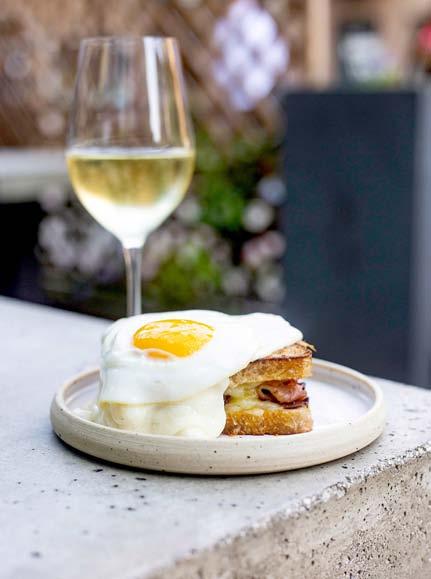
You might be asking yourself how a diner with fresh, locally sourced ingredients can compete price-wise with other diners that use decidedly un-organic frozen foods bought in bulk. It’s a reasonable question, and, in most cases, the cost argument would make sense. But the advantage for the team
at Fol Epi is that they are the purveyors of their own products. Fol Epi already bakes breads and makes pies. Agrius cures its own meats and is making the bacon. With multiple locations already in full swing, they have buying power with local farms and organic suppliers. In short, they can do it because of who they are.
“We buy expensive ingredients,” says Cliff Leir, the driving force behind Fol Epi, “but we know how to stretch them to maximize the value of everything we use.”
That means doing things like buying whole cows from local farms, using some of the cow for cured meat at Agrius and some for burgers for the new diner, then making broth from the bones and finding creative ways to use whatever is left over.
“We’re into accessibility and we want good quality organic food to be available at a good price point,” says Leir.
While most people might consider a restaurant team with organic ethos and a passion for using only fresh ingredients to be something of a new wave, it is in many ways a return to days of old—days when there weren’t as many refrigerated supply trucks traipsing throughout town with bags of imported frozen potatoes and bacon for the masses.
“I’ve been talking with staff at Paul’s, and one server has been
working there for 23 years and another for 34,” says Leir. “When they first started, everything was made from scratch.”
Baking your own breads and savoury treats, sourcing supplies through local relationships and working with a team to deliver high-quality food is a classic restaurant model—it just got lost somewhere along the way in the effort to lower costs. And you can’t really blame restaurants for that, what with the ever-increasing cost of food, rent, and wages, and the diminishing margins for operators. But the team at Fol Epi believes they can do it.
“To be able to do quality food with better ingredients while keeping the price lower is definitely the hardest part of it,” says chef Scotty Hopkins. “But it can be done.”
The menu Hopkins is putting together focuses on diner classics, with several constant items like hot and cold sandwiches, burgers, mac ’n’ cheese and an all-day breakfast. There are also milkshakes, onion rings, and quite possibly liver and onions. Beyond the classics, he will experiment with what is available at different times, keeping things diner-style but always interesting and fresh.
“We will also have a strong vegetarian component,” Leir adds. “We love vegetables.”
At the end of the day, the hope for the team at Fol Epi is to restore vibrancy to Paul’s Diner, putting it back on the

radar for folks who love high-quality food but also seeing friends and familiar faces. Want to pop in and have a slice of apple pie before a show upstairs at the Copper Owl? You can do that. You can also enjoy a glass of organic wine, a cocktail, or a coffee.


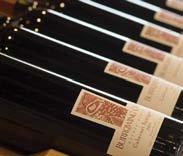
With the doors opening in July, Paul’s Diner is moving into yet another phase of its long history, this time without car hops running up to your window, but with a team that is passionate about great food, fresh ingredients, and familiar faces.


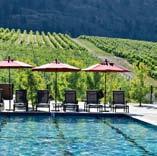

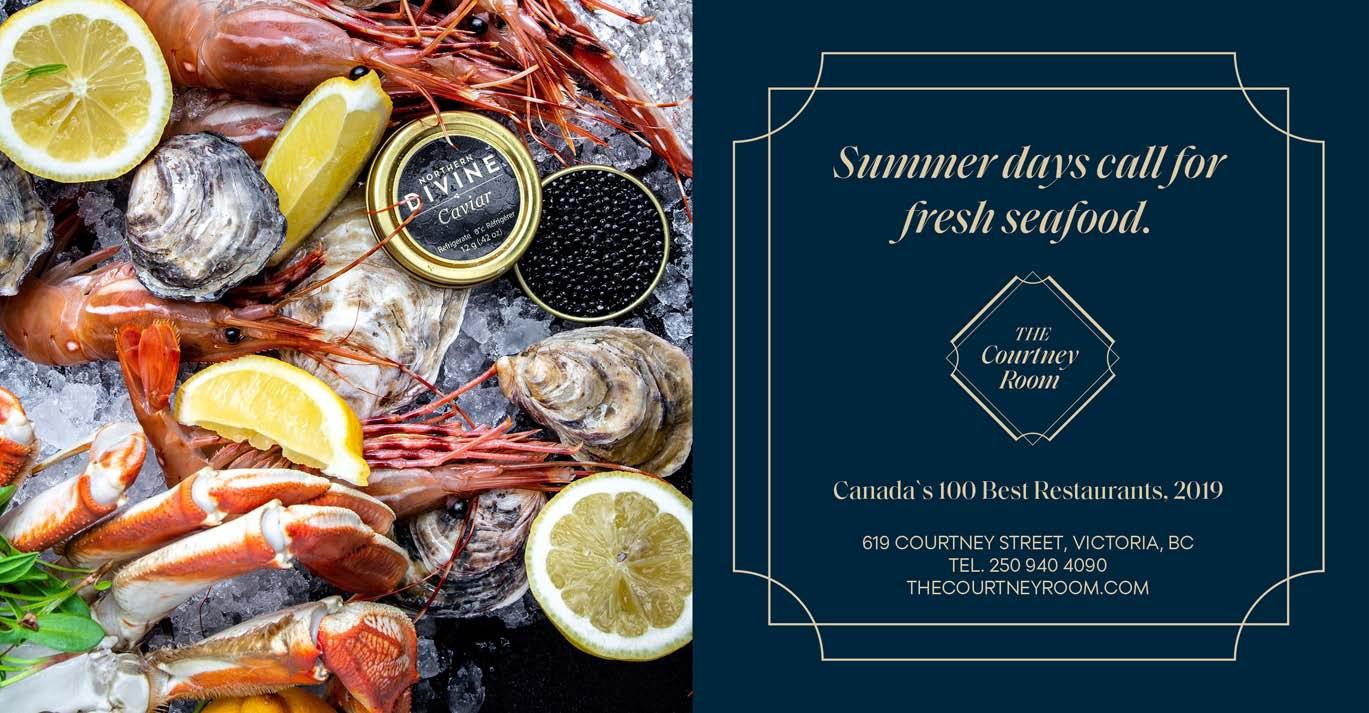 ADRIEN SALA
BUTTERMILK PANCAKES WITH BLUEBERRIES AND MAPLE SYRUP
ADRIEN SALA
BUTTERMILK PANCAKES WITH BLUEBERRIES AND MAPLE SYRUP
The “Burger Crush” story.
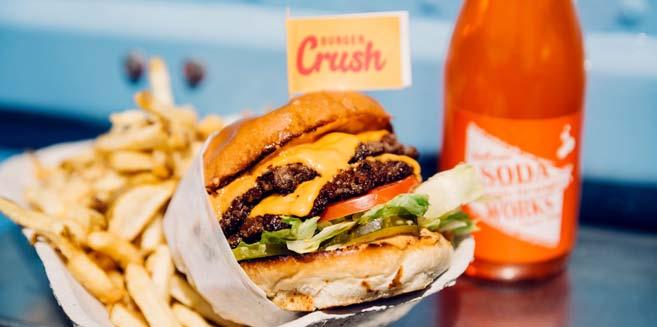

It’ll only take a few minutes from your order to your first bite, but make no mistake—that burger was 12 years in the making.
Calgary, 2007: Head Chef Temperance Phair and Assistant General Manager Scott Renton struck up a friendship while grinding through long, intense shifts at the Red Door Bistro/ Amsterdam Rhino, a large-scale, two-headed monster of a restaurant/pub. A couple of years later they parted ways, taking two separate cases of industry burnout with them.
Temperance Phair stepped away from the kitchen, determined to garner a pay cheque by any means that didn’t involve burns, lacerations and terrible hours. He lasted a year before the siren’s song of the kitchen began calling him back. But he was adamant that his return to hospitality would be on his own terms.
He began shadowing the festival circuit around Calgary, satisfying his passion for both cooking and music through a lo-fi, pre-food-truck-era “pop-up” food stand he branded Dos Gringos. It was at one such event that he met his future wife and business partner, for whom he relocated to Victoria. He credits her with the decision to channel their savings into the Taco Justice food truck in 2012. “I probably wouldn’t have done it,” he smiles, shaking his head at the amount of risk they took, young family in tow.
During Scott Renton’s break from the service industry, he spent a year on a construction crew before the lure of his native Vancouver Island became too much. He returned to a surprisingly sluggish economy—well-paying work was difficult to find. So it was back into the restaurant trenches, serving tables to make ends meet. That quickly led to an “offer I couldn’t refuse” to return to a management position, and seven years later he found himself high up the hospitality food chain, “asking myself, ‘Where did the time go?’”
The two had stayed in touch throughout, kicking around concepts for a joint venture, but nothing had stuck. As Phair points out, “You get an idea, and you think you know what it’ll take to execute, and then you start pulling back the layers … There’s usually more to it than you realize.”
Burger Crush began with a single, shared vision: simplicity. After years dedicated to the intricate systems of food preparation and customer experience, both partners gravitated towards a concept that wasn’t weighed down with a huge administrative burden and an abundance of moving parts. A minimal menu; low staffing requirements; manageable overheads. “Celebrating food doesn’t have to be complicated, doesn’t have to be a big event,” says Renton. Phair adds: “When we started our first food truck, you needed a whacky, crazy personality to get noticed. Now we can do something low-key, but do it really well.”
To get to the juicy heart of North America’s love affair with the burger, they undertook research trips to cities in Canada and the U.S., narrowing their preferences for every component and ingredient. Acknowledging the existing burger options in Victoria, they knew they would have to create something unique to gain—and maintain—a following. By applying their focus and attention to each individual element, they’ve effectively recreated a classic from scratch: hand-pressed, local-beef and vegan patties, potato buns uniquely formulated and made by Irene’s Bakery, and hand-cut fries using Island-grown potatoes, complete with 100 percent house-made sauces.
They anticipate that this authenticity and simplicity will translate into a more streamlined experience for their customers. The something-for-everyone, “bigger = better” menu can paralyze a diner with options, and muddle a restaurant’s identity. In a defiant declaration of their brand’s personality, there’s no plan to expand on their core offerings, or clutter their systems with daily specials. “Do one thing exceptionally well” is the order of the day.
Another reason to keep it simple is the task of operating a kitchen inside a vehicle. The tiny footprint of the truck means all prep and cleanup needs to be done in an off-site commissary kitchen: cutting fries, pressing patties, making sauces, and then cleaning all the gear at day’s end. As Renton muses, “Our walk-in cooler is now on the other side of Victoria.” A busier-than-expected day sounds like a blessing, but they need to be constantly vigilant about sales forecasts and stock levels, to avoid a mad scramble across town.
Despite these challenges, their perseverance is driven by a belief that their concept will resonate with Victorians. Says Renton: “No matter what we’ve put on the menu [at previous restaurants] the best-seller was always the burger.” For Temperance, the burger concept is closer to home: “I have a 13- and a five-year-old. They’d eat nothing but burgers if they had the chance.” They’ve already noted a large family element among their customers, perhaps drawn by the rustic, kid-proof outdoor seating and sauce-soaking wood-chip ground cover.
Looking towards the future, both partners can easily envision a transition from food truck to a brick-and-mortar restaurant, if all goes to plan. In the meantime, their cheeseburgers, vegan cheeseburgers, hand-cut fries, soft-serve, and local sodas will be coming out fast, straight from the grill and over the food-truck counter, at their current location.
DANIEL MURPHY


Just a quick trip up Vancouver Island lies the seaside town of Parksville. Less than two hours from Victoria, Parksville is an easy day trip from the city. However, when the beach beckons, you can decide to stay the night at the Beach Club Resort, grab some cold ones for your suite’s balcony overlooking the water, and enjoy all that the Beach Club has to offer.
This small community has recently become a food mecca with culinaryobsessed locals driving a farm-to-table culture that rivals many larger cities. At the centre of the food scene is the Beach Club Resort, Tripadvisor’s number one-rated hotel in Parksville. Overlooking a broad expanse of glistening sand dotted with sun-bleached logs and rimmed by a wooden boardwalk, the hotel is host to an annual wine festival, Parksville Uncorked, in February.
While in town, you can take the opportunity to venture out and treat your taste buds with a visit to Mount Arrowsmith Brewing Company (recipient of the 2017 Brewery of the Year Award) and a stop at Island Sodaworks, located in an old fire hall in Parksville’s sister city, Qualicum Beach. Then head back to the Beach Club Resort and hit the beach. (Bespoke Spirits House, a new distillery, will be opening to the public later this year, so plan a trip back.)
After a delightful afternoon exploring Parksville and walking the seemingly endless sandy beach, head for the Beach Club’s restaurant, Pacific Prime, and its patio—one of the top patios on Vancouver Island and a bucket list experience if you haven’t been there yet. Sitting on their patio with the spectacular ocean and mountain views, enjoying the local Love Shack Libations pale ale and munching on the exquisite, grilled Little Qualicum Cheeseworks Brie with chipotle charred peach salsa caps off a great day.
Beach Club’s Pacific Prime restaurant’s executive chef Rick Davidson is inspired by the local bounty available up island, and you can see it reflected in his menu. He has a penchant for dry-aged BC Interior beef and fresh sturgeon, farmed from Nanaimo’s Departure Bay.
Following a day of exploring and a night of dining and walking the beach, you can order breakfast in bed the next morning at the Beach Club or head to town to try Bread and Honey for breakfast. This little café was number 10 in Yelp’s Top 100 places to eat in Canada and doesn’t disappoint. A quick morning coffee in mismatched mugs and a sublime pastry, and you are back on the road to Victoria or your next Vancouver Island adventure.
Sunset dining at Pacific Prime Restaurant, Beach Club Resort The seemingly endless Parksville beach Patio at Beach Club ResortWORDS
Adrian Paradis
PHOTOGRAPHY
Rebecca Wellman
A warm and satisfying meal on a bun is the perfect answer to the weekday morning balancing act.
 F ROM REBECCA WELLMAN'S BOOK 'FIRST, WE BRUNCH' (TOUCHWOOD)
F ROM REBECCA WELLMAN'S BOOK 'FIRST, WE BRUNCH' (TOUCHWOOD)
Lives are more hectic than they used to be, the pace of life no doubt keeping stride with the constant increase in societal and technological advances. This isn’t to say our forebearers didn’t have full and eventful times on this earth, but they probably didn’t know the chaos of trying to schedule work, school, social life, family time, and exercise all in one day while still hoping for a few minutes to check Twitter in the morning.
Modern problems require modern solutions, and the demand for the breakfast sandwich was born. It’s not always possible to eat something healthy and warm at home in the morning, but Victoria’s broad range of quality cafés has you covered. Just a quick pop in and you’ll be on your way with a warm, portable breakfast and coffee in no time. Here’s a selection of some of the options in town.
1105 CALEDONIA AVE. (250) 383-5999

“For us, it’s been about 12 years of breakfast sandwiches,” says co-owner of the Parsonage Café in Fernwood, Ben Cram. “We haven’t changed a thing. It’s identical to the first day of service.” Averaging nearly 100 sandwiches on a given day, the Parsonage has found a classic formula that works. “In our old building, we could get Mount Royal Bagels direct out of the oven,” says Cram. “We still walk over each morning and get fresh bagels every day, but it’s one street over now.”

Here, simplicity is key. A fresh Lockwood Farm egg is fried and placed on a chewy sesame bagel along with a slice of Cheddar cheese. Options include Slater’s bacon, tomato, or an amazing creamed spinach topping. Cram insists there’s no secret to the sandwich’s popularity, save for the quality and freshness of the ingredients. Lockwood Farms, for instance, uses a commercial-grade insect feed for their chickens, as opposed to grain. The result is a rich, dark yolk. “This sandwich is basically a copy of a cafeteria sandwich I used to get while I was in culinary school 25 years ago,” says Cram.
313 COOK ST. (778) 433-1007







At Hot and Cold Café in Cook Street Village, owner Chelsea Harrison has forgone simplicity for choice. “It starts with our focaccia bread, which we make every morning. From there we have a million options,” she says. While the basic comes with egg, mayo, and Cheddar cheese, for an additional dollar each you can add: a free range egg; avocado; brie; black olive; kale and feta; sweet chili, sriracha, and basil; pesto; fresh tomato; Hertel’s bacon; or a mushroom meatball (which costs $2).
After toppings have been arranged, the cheese is melted open face so the whole thing can be pressed together and grilled panini-style. The result is an exterior with a satisfying crunchy texture and a melty, cheesy inside. While Harrison says standards such as avocado or bacon are the most popular, their menu allows for thousands of combinations, including very specific creations or, for those who value the messy option, “the works.”
506 FORT ST. (250) 590-5737 & 1019 FORT ST (250) 590-1201
“There’s nothing too wild about our breakfast sandwich,” says Picnic owner Jon Perkins. “We just choose good ingredients and it’s nice and fresh. But we have some people that will religiously come in every day for it.” Perkins says Picnic Coffee has had a breakfast sandwich on the menu since they opened a decade ago on Fort Street. In that time, they’ve gone through their fair share of them. “The volume we do is insane,” says Perkins. “We have days where we sell dozens and run out of bread, and it’s not even 10 o’clock.”
The Picnic breakfast sandwich is served on a soft Portuguese-style bun with smoked bacon, Havarti cheese, tomato, and the nice addition of fresh greens. Or, for $7.50 you can get the Owen, a version of the sandwich popularized by one of Picnic’s regulars. It substitutes the soft Portuguese bun for a pretzel variety and comes with goat cheese, smoked bacon, crispy onions, avocado, tomato, and greens.
101-398 HARBOUR RD (250) 477-8882 & 732 YATES ST. (778) 265-6312
Agrius and Fol Epi both serve the same breakfast sandwich—one in the dining room on Yates and one to go from both cafés, on Yates and Dockside Green. Fol Epi’s to-go orders, however, vastly outsell the dining room’s volume. Max Durand, chef at Fol Epi/Agrius, says their breakfast sandwich is in line with the rest of their approach at the restaurant of focusing on quality suppliers and local producers.
“We tried to think what the quintessential breakfast sandwich looked like and we came up with a few things,” says Durand. “A really soft bun was important.” While subjects like to greens or not to greens (they went with greens in the end) were controversial and sparked debate, some choices were easy. In place of the chewy English muffin, they use a seeded Fol Epi bun, cook an organic egg to order, and use a mix of grated Cheddar and Alpindon cheese from the Kootenays. They then finish it off with a simple tomato jam and garlic mayo.
“There’s a satisfaction in biting into something that’s warm and fresh and portable,” says Durand. “You can eat in, but the fact that you can grab a sandwich made with warm, satisfying eggs to go is something else.”
965 KINGS RD. (250) 385-2326
“Breakfast sandwiches are one of those things where the sum is more than just the components that go into it,” says kitchen lead at Café Fantastico in Quadra Village, Sheila Dickie. “There’s a lot of care and steps that go into just a sandwich, and in the end it feels like you’re eating a whole dish.” Dickie says they keep their ingredients as local as they can, using a Portofino bun, bacon from the Whole Beast (which they slice themselves), eggs from Cobble Hill, and greens from their own rooftop garden.
“There’s no skimping on any of the ingredients, or the quality of them,” says Dickie. Here the soft seeded bun cradles the chewy bacon, egg, and slightly spicy guacamole, which adds a welcome bit of heat and acidity. When eaten in-house, the sandwich is also graciously served with hot sauce.
740 HILLSIDE AVE. (250) 384-5282 & 1-1701 DOUGLAS ST. (250) 590-8282
Full disclosure, I used to manage the kitchen at 2% Jazz, so I was once all-too-familiar with these sandwiches. You might think that after making literally thousands of these I would never want to see one again, but in all honesty I sometimes miss the daily ritual of sitting down after the sandwich rush to enjoy a quiet coffee and warm breakfast.
Today, Stefan Guy is doing an excellent job of managing the 2% kitchen. “They are largely the same as when we started,” says Guy. “We’ve focused on those core goals that Sam Jones—2% Jazz’s owner—has laid out; local ingredients and high quality.
Guy’s breakfast sandwiches are made on toasted English muffins with a fresh egg, Cheddar cheese, strips of bacon, and house-made bacon jam. Sandwiches are made in the
Hillside 2% location and delivered to the Douglas location, as well as two additional cafés they cater for. Between them all, Guy says they’re making roughly 150 sandwiches a day. “We believe in unsophisticated sophistication,” he says. “We try to match our food to that model. We do a really high quality sandwich that is still affordably priced.”
1310 DOUGLAS ST. (778) 265-6060
Many people know Ruth & Dean on Douglas Street for their amazing cakes and pastries, but their stellar brunch menu is still a bit of a known secret. “We’ve been making the breakfast sandwich since the day we opened,” says owner Susannah Ruth Bryan. “It’s stayed exactly the same since day one. It’s perfect so there’s no need to change it. I’ve tried iterations, but nothing has ever been as good.”
While Bryan admits she may be biased, her sandwich does stand out among others in town. Warm, crumbly biscuits from Bryan’s old family recipe are made fresh each morning. The finished product is a towering culmination of layers of chimichurri, Cheddar, avocado, and runny egg that are delicately stacked and pressed together. “They check a lot of boxes for people,” she says. “It’s something like a hybrid between eating hot breakfast— like your mom told you to—and eating a burger. It’s a win-win.”
1294 BROAD ST. (778) 265-8101
Ryan Wilson says that breakfast sandwiches were the reason he and his co-owner started Rise and Grind on Broad Street. “We’ve always been a huge fan of breakfast sandwiches,” he says. “So we wanted to make one that’s consistent, quick, and affordable.” They started by looking at what other restaurants were doing, including taking influences from chef Alvin Cailan of the popular Eggslut in California. He says Cailan was his influence for their Spam breakfast sandwich, the Hawaiian Sophie (see EAT ’s November/December 2018 issue).
Their menu is varied and stacked with hip hop and pop culture references from Dr. Dre (The Big Mac Dre: bacon and egg sandwiched between two syrupy Eggo waffles) to Snoop Dogg song titles (The Bidness-Every Ting: sausage, Spam, jalapeño jack cheese, egg, hash brown, Cheddar, bacon, and sriracha mayo).
Wilson says their Originator (egg, bacon, Cheddar, sriracha mayo, and green onion on a soft brioche bun) is by far their bestseller. Every sandwich also has the option to add a hash brown patty for an extra $1 (recommended) or to “Double Down” — double the egg, meat, and cheese — for an extra $3.
1286 MCKENZIE AVE. (250) 477-9495
The Root Cellar is well known for its amazing selection of produce, but last year they expanded to include the Coffee Project at their Saanich store. Now patrons looking for their fresh leafy greens will also be able to stop in for a quick coffee and bite to eat.
“Our breakfast sandwiches are made in-house daily from scratch by our deli team,” says co-owner Daisy Orser. Starting with a plush peasant bun, they top their sandwich with black forest back bacon made just for them, or pesto and an island-made spicy tomato jam for the veggie variety. “Breakfast sandwiches are a very portable, quick, and delicious option for breakfast,” says Orser. “All of these factors are now becoming increasingly important in our busy society and the breakfast sandwich meets that demand.”
RECIPE + STYLING + PHOTOGRAPHY
Rebecca Wellman
One bowl, one grain, one protein and an endless supply of ingredients on top equals one fast and healthy meal.

One of my very favourite things to have at the ready is a bunch of ingredients I can throw together when I’m busy and hungry and don’t want to cook. Yes, this means a bit of prep time, but it pays off on those days when I’m working late and don’t want to spend a lot of time in the kitchen. All of this comes in the form of the currently popular “bowl” and the options for this are virtually endless.
In the wintertime, I roast vegetables, pickle things, prep greens like kale or chard, and make sauces. I try to keep it seasonal and fresh, including healthy elements that are warm and satisfying.
In the summertime, however, it is all about the fresh produce that is so readily available. Big bags of assorted greens, sweet tomatoes and cucumbers, herbs, peas, even edible flowers are kept at the ready for throwing together.
Essentially, bowls have a few main components that can be made up of whatever you like best:
This is typically a grain such as cooked quinoa, farro, millet, brown rice, white rice (melt some coconut oil in a pot, add a Tbsp of powdered turmeric and stir-fry your rice in it for 2-3 minutes before adding the water. This makes for a lovely yellow rice), or any other grain. This could also be roasted potatoes, sweet potatoes, lentils, or a combination of all of the above. Keep a pot of one or more of these in the refrigerator for 3-4 days.
Whether you’re vegan, vegetarian, or carnivorous, having a protein at hand will make it easy to add to your summer bowl.
Tear up some extra firm tofu (do this rather than cutting it. The seasoning will get into the nooks and crannies and better flavour the tofu), season generously with smoked paprika, cumin, garlic, salt, and pepper. Add a bit of olive oil and roast in the oven at 425°F for 15 minutes, tossing once at the halfway mark.
Grill some chicken or steak or fish. Marinate or season it with a pesto or with Asian-influenced flavours, such as a combination of soy sauce, fresh ginger, sesame oil, and rice wine vinegar.
Dice some sashimi-grade fish such as tuna or salmon. Soft or hard-boil some eggs. Poached or fried eggs, done just before serving, work well, too.
Toss a can of drained and rinsed chickpeas in a Tbsp of onion powder, 2 tsp of garlic powder, 1 Tbsp of apple cider vinegar, 2 Tbsp olive oil, 1 tsp ground mustard seed, 1 tsp ground chili flakes, salt and pepper, and roast at 400°F for 25 minutes. If you have tajin, a Mexican blend made of citrus and spice, toss 2 tsp of that in, too. It is a little bit life-changing.
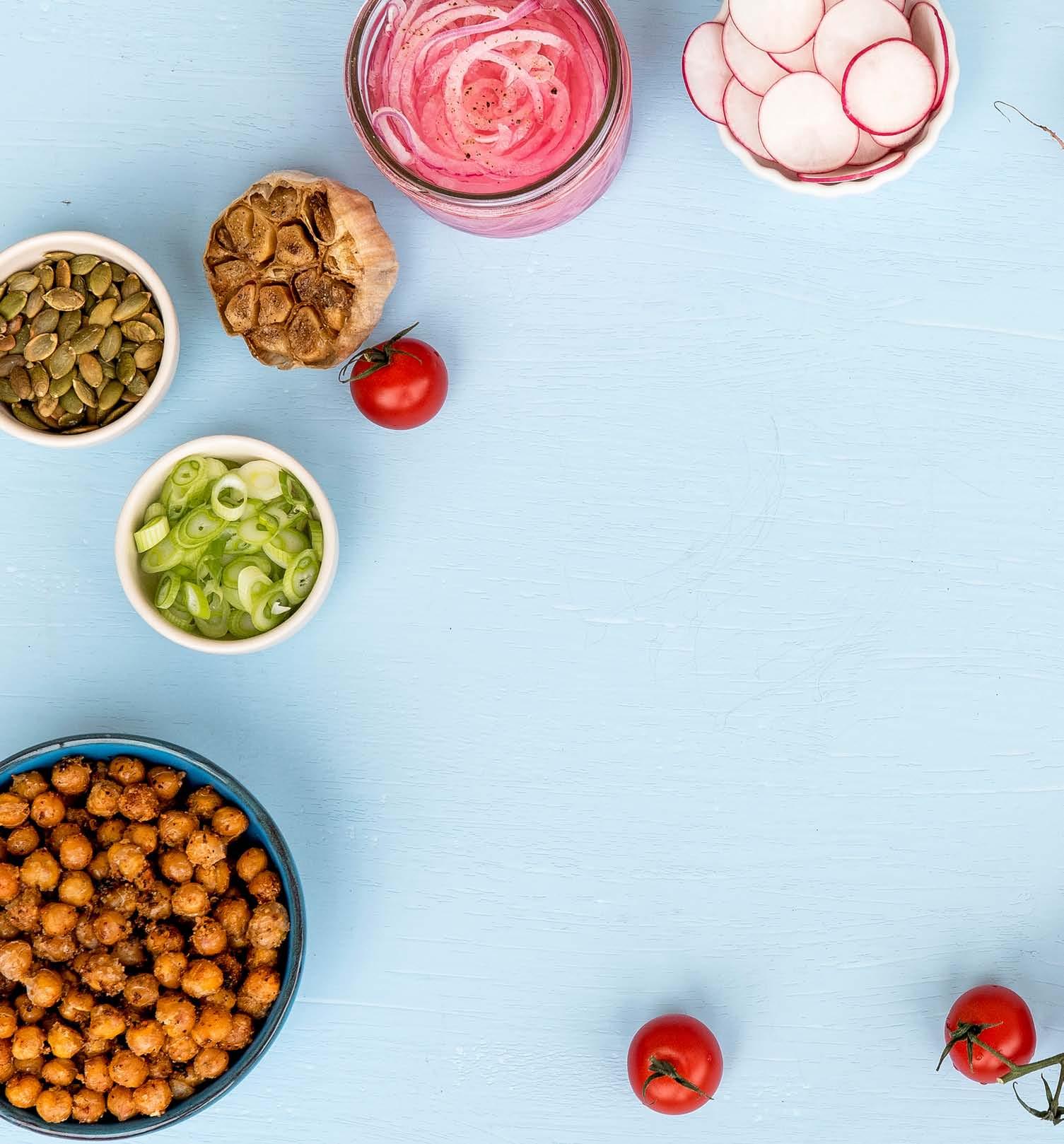
Keep your proteins in the refrigerator for 2 - 4 days.
This list can be endless. When focusing on summer bowls in particular, be sure to think fresh. Baby tomatoes; grilled corn cut off the cob; peas from the garden; mixed greens; radishes; hot or sweet peppers; scallions; edamame; fresh snipped herbs such as basil, cilantro, tarragon, parsley; cucumbers; zucchini; raw beets; sweet carrots, etc. Chop your vegetables and keep them in the refrigerator for 3-4 days. Keep things like carrots in water so they don’t dry out.
I know this isn’t for everyone, but I love the addition of a few pickled items in my summer bowls. This could be as complicated as fermenting cauliflower to adding some vinegar and salt and pepper to your favourite vegetable.
A couple of my favourites are pickled red onions and radishes. Use a mandolin to slice thin, place in a sterilized jar and pour plain white vinegar (or apple cider, rice, or white wine vinegar) over top, season with salt and pepper, and enjoy! These will keep in the refrigerator for a month or two.
Another is pickled jalapeños for a bit of heat. In a small saucepan, heat a cup of white vinegar, 1 tablespoon salt, 1 tablespoon sugar (or to taste), 1 teaspoon dried oregano, and bring just to a boil. Remove from heat. Add sliced jalapeños and let sit for 30 minutes, or until jalapeños are slightly softened. Pack into a sterilized jar and keep in the refrigerator for up to a month.
Be sure to use a clean fork to retrieve these treats from the jar each time. This will help to avoid the accumulation of oils and bacteria and will allow the pickles to last longer.
Again, this list could be endless. Pea shoots, toasted nuts or seeds, hemp hearts, chia seeds, berries or dried fruit, feta cheese, sauerkraut, hot sauce, avocado, flavoured salts, etc.
And now for the crowning glory. Sauces should be a happy medium of salad dressing and sauce. In other words, not too vinaigrette-y, yet not too much like gravy. Bright, citrusy with some good umami and a little bit creamy, make these by taste, adding and subtracting ingredients as desired.
Cilantro Sauce: In a mini food processor, blitz up 1 avocado, 1 bunch cilantro, ¼ cup lime juice, 1 green onion, 1 de-seeded jalapeño, 1 tsp Dijon, ¼ cup plain yogurt, 1 Tbsp mayo, 1 tsp honey, salt and pepper. Thin with a bit of water or olive oil as needed.
Orange Miso Sauce: In a mini food processor, blitz up a 2-inch piece of peeled fresh ginger, 3 roasted (or raw) garlic cloves, ½ bunch parsley, 2 Tbsp red miso paste, 2 Tbsp lemon juice, 4 Tbsp orange juice, a touch of honey (optional depending on how sweet the orange is).
Dressings will keep in the refrigerator for 4-5 days. Don’t want to make your own dressings? Try the Root Cellar’s Green Sauce or the Stubborn Chef Ginger Dressing. Velvet Dressing by GumTree or Little Creek Dressing are also great alternatives.

Antique bar cart—check. Silver-plated serving tray—check. Eclectic vintage glassware and tools purchased from thrift or consignment—check. Environmentally friendly, low-impact paper straws with colourful pineapple design—check. The second renaissance of the home bar is upon us as the rise of cocktail culture and its appeal are undeniably evident again. Let’s face it, making a good drink has always been a cool skill to have; we liken it to what golf is for the business world: an established way to network and build a quick rapport with someone. Being able to offer a guest a cocktail is an easy wow when most would be happy with a glass of wine, beer, or cider.
THESE DAYS, IT HAS NEVER BEEN EASIER to access information or tutorials on this subject. Gone are the days of dusting off heavy tomes containing 500+ cocktails (95 percent of which you’ll never make) to find that elusive Tom Collins recipe. Smartphones have changed everything. Within a few seconds, you can be watching a how-to on YouTube from your favourite professional bartender, or scrolling through a beautifully curated Instagram feed containing endless visual inspiration with colourful concoctions and gorgeous garnishes.
A problem many face, however, when venturing into this world of entertaining at home, is what liquor to start with. What are the bones that will get you up and running? Don’t worry, we’re here to help!
We’ve put together the tried, tested, and true staples that will cover you for a number of celebrated classics and—more importantly—on a realistic budget. Collecting a few bottles with a targeted approach means you can mix a number of recipes depending on your guests’ tastes. Whip up a house “menu” of sorts that gives an array of choices from spirit forward and boozy, to bright and refreshing.
The following is a $300 kit of absolute workhorses that
serve the globe on a nightly basis and have the endorsement of the experts.
Throw any gin recipe at it. We dare you to find one it doesn’t perform well at! It is perfumed beautifully with fruit and spice, but still showcasing the juniper. It still has the sting you want from a London Dry but has a herbal bouquet on the palate and finishes with a citrus kick. Tanqueray is nice if you want more of that grapefruit and orange peel, and Bombay is fantastic if you want more black peppercorn and herbs. We like Beefeater because it tempers the two flavour profiles as a nice in-between.
It’s the ultimate daiquiri or mojito rum, plain and simple. While relatively inexpensive, it is steeped in prestigious Cuban history. Its iconic pale straw hue is a result of resting in ex-bourbon barrels for three years. Funky on the nose (we like this with rum), lots of vanilla, spice and dark sugar, it tastes of caramelized pear, honey, slight citrus, and mellow oak. When we grab for a rum this time of year, chances
are we’re whipping up a mojito with mint from the garden, or maybe just a rum and coke for the patio. Havana Club 3 Year has a robust backbone that doesn’t get lost in cocktails and still evokes that sense of the tropics with a toasty molasses character.
When picking a house whisky for mixing, you could opt for bourbon, Canadian, Irish, or American (Scotch is a whole other beast and we’ll tackle that next). We like this 95 percent rye entry from Tennessee because it is smooth and spicy all in one. Lots of stone fruit and sweet nutty aromas to go along with charred wood and vanilla. At five years of age, it’s still feisty with plenty of white pepper (typical of rye), but then chewy like a bourbon on the palate showing leather and oak.
Tennessee is famous for its charcoal filtering process, and it shows up here with marshmallow notes on the finish, which makes this very easy to drink neat despite the higher 45 percent ABV. This is good for cocktailing though, as it won’t get lost in an Old-Fashioned, Sazerac, or Whisky Sour. The peppery quality is really beautiful as a highlight in a Manhattan as well.
WORDS Nate Caudle PHOTOGRAPHY Rebecca WellmanHere on the West Coast, we love our smoky aromas (no, not that kind). A campfire smouldering on a dewy morning outside our tent, or a piping cup of Lapsang Souchong tea to warm us during the cold months. Put that into a Scotch that costs less than half the price of infamous face-melters like Laphroaig or Lagavulin and you have a bottle you can confidently reach for without wincing at your wallet.
Scotch is very subjective and people have tastes they gravitate to by region. Highlands tend to be grassy and floral with candied citrus and spice. Speyside malts reflect sherry character, most often with plenty of fig, raisin, and chocolate. Islay is famous for peat smoke on its whiskies; medicinal briny notes that caress our noses with the Scottish sea and earth, then finish with fiery goodness.
We love this as our Scotch offering because it sits alone as maybe the best single malt you will find in its price bracket while still providing the peaty/smoky notes that are becoming more desirable among whisky drinkers. Offer it neat, or in the delicious neo-classic Penicillin cocktail: Scotch, ginger, honey and lemon. If that doesn’t cure you, nothing will.
This next category we call “modifiers” as they augment cocktails to provide texture, as well as secondary, even tertiary flavours. Adding a couple of these to your collection diversifies your recipe capabilities immensely. Cointreau is our preferred member of the orange liqueur family (Triple Sec, Grand Marnier, etc). It has a cleaner orange oil note to it and less cloying sweetness than the others. It is an absolute game changer when added to your cabinet as it is essential for a tasty Sidecar, Margarita, or White Lady. If sour is the game, this little number becomes invaluable in balancing an acid against a base spirit.
Italians understand drinking etiquette very well. In North America, we are still sort of figuring it out. Low alcohol “aperitifs” and snacks are consumed to stimulate appetite, setting the stage for dinners with beautiful wines and rustic fare. After dinner, you settle the stomach with “digestifs” loaded with plenty of medicinal herbs to help relax the stomach and let you sleep like a baby. Even if it’s just for the Negroni cocktail alone, Campari is worth stocking. Arguably the most popular cocktail globally for any time of the day, and maybe the easiest recipe ever: one part gin, one part Campari, one part sweet vermouth, stirred and strained over ice in a tumbler with a nice slice of orange.
Despite people finding it polarizing with its bittersweet orange and gentian root notes, this popular aperitif harmonizes with pretty much everything when it comes to cocktails, and there is simply no competing substitute for it after all these years.

This is a pre-made cocktail that costs a little over $12 a bottle. At the heart you have a base wine, fortified with some extra alcohol, and then flavoured with bitter herbs, fruits and spices. You can enjoy it on the rocks with a twist of lemon, maybe some soda, or in the myriad timeless tipples that call for it. It serves as a lengthener in drinks to stretch out the pour and lower the ABV at the same time. We like Cinzano as our one sweet vermouth because it tackles the assignment of taming bitter things very well.
Gin martinis, that is all. Dirty with olives, or crisp with a lemon twist. Whatever your fancy, stir one of these and strain delicately to preserve that glassy texture on top. Just remember it is still a wine, so keep your vermouth refrigerated to prevent oxidation. Sweet or “rosso” will last a little longer due to the sugar content, but no more than two weeks after opening. They also have smaller bottles so you cycle through with less wastage.
Bitters are the spice rack of your bar; adding depth and character by bringing out flavours in your other ingredients and binding simultaneously. This aromatic bitter can do no wrong. It is leaned on heavily by bartenders everywhere to add that certain “je ne sais quoi ” to a drink that is lacking complexity. Lots of winter spices (clove, cinnamon, allspice) help bring punch to cocktails that are falling flat.
There are an innumerable amount of flavours for bitters these days. However, don’t be fooled. You really only need a couple to execute 99 percent of the cocktails people actually order. This is one of them: New Orleans in a bottle. A medicinal tonic made by a Creole apothecary named Antoine Peychaud from Haiti who settled in NOLA and started mixing his bitters in a more recreational manner with brandy in a toddy-style drink. Years later, after the phylloxera plight of the late 19th century all but wiped out France’s wine and brandy production, rye was substituted for the brandy in a drink that also had absinthe with a dash of sugar and some lemon peel. Enter what many consider the first great American cocktail—the Sazerac. The cherry, anise, and cinnamon in this bitter make it quintessential to this category.
Palate and preferences differ from person to person, but as bartenders who live and die by the classics, these are the choices that will perform time and time again. British Columbia has a great selection of craft spirits available with flavours all over the spectrum, so if you wish to upgrade to local offerings, that’s always an option as well. A caveat, though. Just because they’re in the same spirit category doesn’t mean they’ll act the same in cocktails.
WE’LL FINISH STRONG with a modern classic that puts a few of these bottles together for a great summertime refresher. Clean and elegant, the Jasmine still communicates the potency of the spirits behind it. Think of a Cosmopolitan without the candy-sweet characteristics if you will. When executed properly, it tastes of fresh squeezed grapefruits with a slight bitter finish.
Cheers, and happy mixing!
Jasmine
1½ oz London Dry Gin
¾ oz lemon juice
¼ oz Campari
¼ oz Cointreau
Combine all in a shaker with ice, shake until chilled, strain into a fancy coupe, and garnish with a lemon twist.
We’ve alluded to a few earlier, but here are some cocktails you can mix up with these bottles as your foundation:
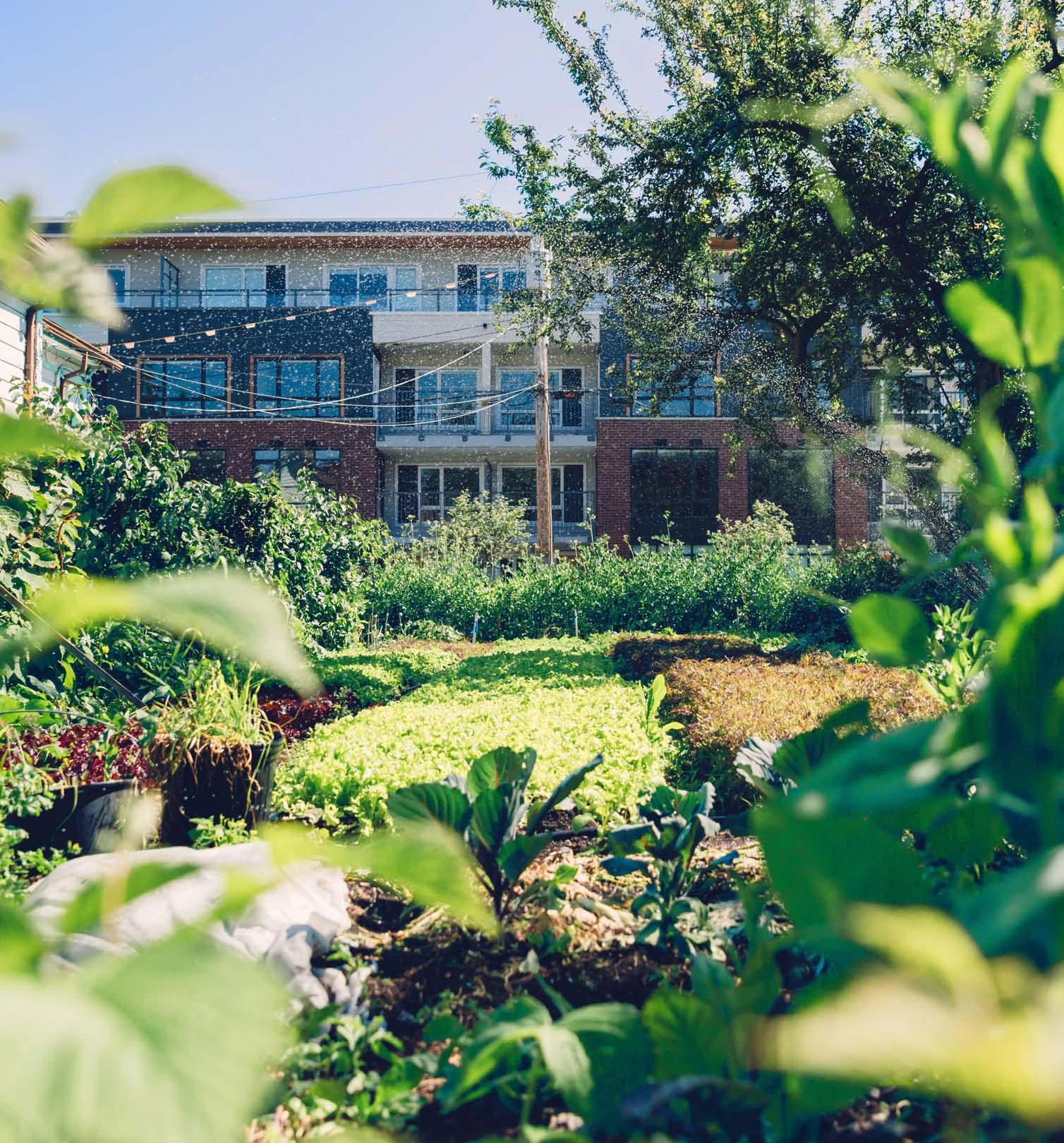
How to enjoy fresh local produce while living in our urban core.
Pull a carrot fresh from the dirt, rinse it, and eat it. Your senses will tell you–it’s just better. Better than what you’re used to. Your body is instinctively telling you that there’s a difference between a fresh, locally grown vegetable and its imported counterpart. Strawberries, pears, beets, even potatoes—the improvement in flavour, and usually texture, is truly remarkable.
Couple this instinctive knowledge with the fact that we live in our country’s least severe climate, and the question must be asked: why aren’t we all eating more fresh, local produce?
For most of us, the word “cost” springs immediately to mind. (Strange, the things we can justify spending on, but when it comes to our own bodies, and in turn our health, we have no trouble scrimping.) There is no denying the cost of fresh produce is relatively higher than warmer-climate imports—and this may be truly prohibitive for some. But within our total food expenditure, the fraction that remains on the Island is scarily small—far smaller than our incomes would allow.
And although seeds, dirt, and water might all be relatively inexpensive, the lifestyle of a downtown dweller rarely includes the free time and space it takes to attentively nurture even a modest production garden. Also, preaching about growing and harvesting “nature’s bounty” is about as attractive as overbearing patchouli and sweaty Birkenstocks. So I won’t advocate trading in our collared shirts for coveralls just yet.
So, if we’re not inclined to cultivate a plot of micro-greens in our micro-lofts, what are our options?
Surprisingly many.
Victoria’s urban farming community has remained stalwart through the decades, enduring the waves of intense in-fill and development that constantly threatens to erase their small plots of greenery in the name of housing density.
No farm has maintained its vision for urban production and permanent integration into the city landscape more fervently than the Mason Street City Farm. Operating since the early 1900s, Mason Street’s verdant, productive half-acre grows on private land leased by Angela Moran and co-farmed with Jesse Brown since 2006. They’ve invested considerable time and resources into upgrading the farm to maximize its output, while streamlining processes and increasing the diversity of their crops.
While their broader mission is to strengthen community and food security through clean growing and eating practices, on a dayto-day level that results in fresh, organic produce for Victorians. Grown utilizing aquaponic techniques, their wide array of crops— from vegetables, to herbs, fruit and flowers—are available for sale through their “farm stand,” which is open seasonally Wednesday –Saturday, with fluctuating hours (usually mid-morning to afternoon.) Their periodic “edible nursery” sales of hardened-off starters are also perfect for anyone looking to establish their own food-bearing plants at home.
Across the Gorge in Vic West, at the foot of the Dockside Green development, Topsoil Innovative Urban Agriculture offers residents of the many surrounding mid-rise apartment buildings a chance to buy fresh, organically grown vegetables. Using an aboveground method for growing potted crops, founder Chris Hildreth initially focused on providing Victoria’s restaurants with fresh goods in a sustainable method that actually created a negative carbon footprint.
Thankfully for us, they too opened a farm stand a couple of seasons back, which runs May – September, and offers lettuce, kale and chard, herbs, radishes, turnips, cucumbers and squash throughout the growing season.
The ability of these urban farms to sell directly to the public is a relatively recent amendment to Victoria’s bylaws and the City legalized the ability to grow and sell food on residential sites in

Victoria. (The only major stipulation is that the operator purchase either a seasonal or annual business license.) And this ability isn’t restricted to full-scale farming operations. Anyone can apply. Hopefully this will entice more private landowners, who have the space and time to spare, to engage in small operations of their own. Idyllic strolls through the neighbourhood picking up the week’s provisions within a few-block radius, anyone?
Prior to the legalization of on-site farm stands, Victoria’s food producers relied solely on selling their wares at the city’s local markets. As such, the long tradition of farmers’ markets continues in the downtown area and in Victoria’s satellite “villages”: Moss Street, James Bay, Bastion Square, Oaklands, Oak Bay and Esquimalt. This is a great opportunity for residents of the downtown core to purchase from the increasing number of smaller-scale local farms that they wouldn’t necessarily drive to.
For those who want their freshness fix year-round, and without leaving the comfort of home, your best option might be investing in a CSA program (Community Supported Agriculture). Many local farms put together weekly or bi-weekly assortments of produce,


for a set price, with most offering delivery service. It’s a fantastic way to experience seasonal flux through food and also throw some diversity into your dishes: vegetables that don’t usually frequent your shopping basket can inspire you to expand your culinary repertoire (see: parsnips. Who would have thought?)
There are too many local CSA-program farms to list, but no matter which of them you land on, prepare to enjoy either a high-season or year-round service that offers seven to 10 different crops, house-curated from basically anything that can be grown in our climate: radishes, beets, potatoes, peppers, beans, a wide range of greens, fruits, herbs, and even preserves. Depending on the program you choose, these crops may come from a singular farm, a collective of farms, or even a network of private urban properties that are loaned to co-operative farmers.
Should you feel the need to exercise your own green thumb, but lack the available space to do so, the tradition of local, urban farming in Victoria—in a communal fashion—goes back decades. Community gardens are scattered throughout the CRD. Although waiting



 WORKING AT TOPSOIL INNOVATIVE URBAN AGRICULTURE
TOPSOIL INNOVATIVE URBAN AGRICULTURE'S POTTED CROPS
CHECKING THE PEAS - MASON STREET CITY FARM
MASON STREET CITY FARM STAND
RESIDENTS AT MASON STREET CITY FARM
THE MARKET GARDEN IN VIC WEST
WORKING AT TOPSOIL INNOVATIVE URBAN AGRICULTURE
TOPSOIL INNOVATIVE URBAN AGRICULTURE'S POTTED CROPS
CHECKING THE PEAS - MASON STREET CITY FARM
MASON STREET CITY FARM STAND
RESIDENTS AT MASON STREET CITY FARM
THE MARKET GARDEN IN VIC WEST
lists can sometimes be measured in years, these publicly rented plots can range from a single raised planter bed to more than 1,000 square feet. That’s enough ground to grow sizeable and varied crops.
For those who prefer to facilitate rather than execute hard labour, a handful of outfits will gladly come to your property and plant/harvest for you. If you’re lucky enough to have a yard near the downtown core, and it is home to one of the abundance of fruit trees remaining from Victoria’s once-expansive orchards, Life Cycles offers programs from restorative care to harvesting. If your tree is in good shape, their harvesting service will only cost you a portion of what they reap. That food is then distributed to thousands of people across the region through their many outreach programs.
For most of us, the path of least resistance to buying local, fresh groceries is through our usual channels: storefronts. While the presence of local and fresh produce in chain supermarkets is undoubtedly increasing, the face of the grocery store as we know it might be undergoing a welcome change. Expanding on the local focus of iconic “convenience stores” such as Niagara Market in James Bay, The Market Garden in Vic West is a unique combination of farm and store, all rolled into their Catherine Street location. Patrons can stroll through a functional and beautifully tended working garden before purchasing its produce on-site. Their range of store-grown produce is complemented by other local

groceries, a fantastic range of heirloom seed stock and other ethical-choice household and pantry essentials.


With so many opportunities for us to choose fresh and local, we may be able to reverse some of our own very disheartening consumption trends. The battle to put locally grown produce onto Island plates is a relatively new one: it’s estimated that during the 1950s, up to 85 percent of produce consumed on the Island was local. But by 2006 that figure had crashed to five to ten percent.
To translate that into dollars and cents, it means that on average we’re dedicating around three percent of our total grocery bill to local farmers and spending the rest elsewhere.
Against this backdrop, the argument for increasing the infrastructure for local farming could go one of two ways. One, it shrinks because the demand just isn’t there. Or the other, more optimistic, outlook is that our lack of attention to our food systems has bottomed out, and we’ve now begun a sustainable upward swing. A feasibility study by Vancouver Island University reports that in contrast to the overall decline of the farming industry on Vancouver Island, small and medium-scale agriculture is actually expanding in the region, driven primarily by our desire for food production and processing methods that are environmentally sustainable.
Hopefully this recent, small increase in the number of local farms, and the attention we are paying to existing urban farms, could signify that we’re headed for a full-circle resurgence: perhaps our relationship with our food is cyclical, and we are working our way back to a healthier balance between local support and our reliance on imported goods.
The only way to truly encourage this direction is by spending on it. We are, after all, Canada’s verdant backyard. There is no justifiable reason why we aren’t eating more food grown locally. The excuse of downtown living is becoming less and less convincing.
ARTICHOKE AT BANFIELD COMMONS COMMUNITY GARDEN SOME OF THE BOUNTY AT THE MARKET GARDEN
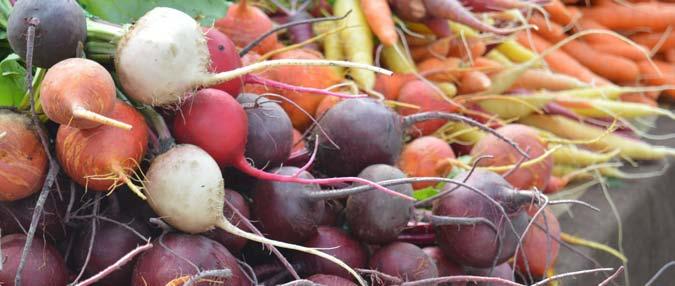










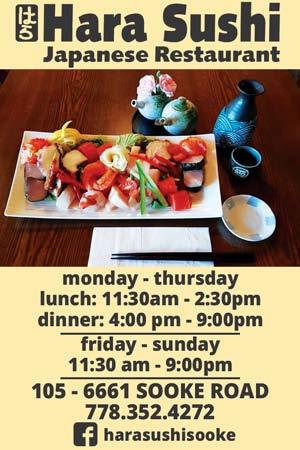
Escape into nature - and find great food, local spirits, craft beer, and ocean harvest. Stop to pack a meal for your forest hike, spectacular beach afternoon, or campsite dinner. We welcome you - just bring your appetite!
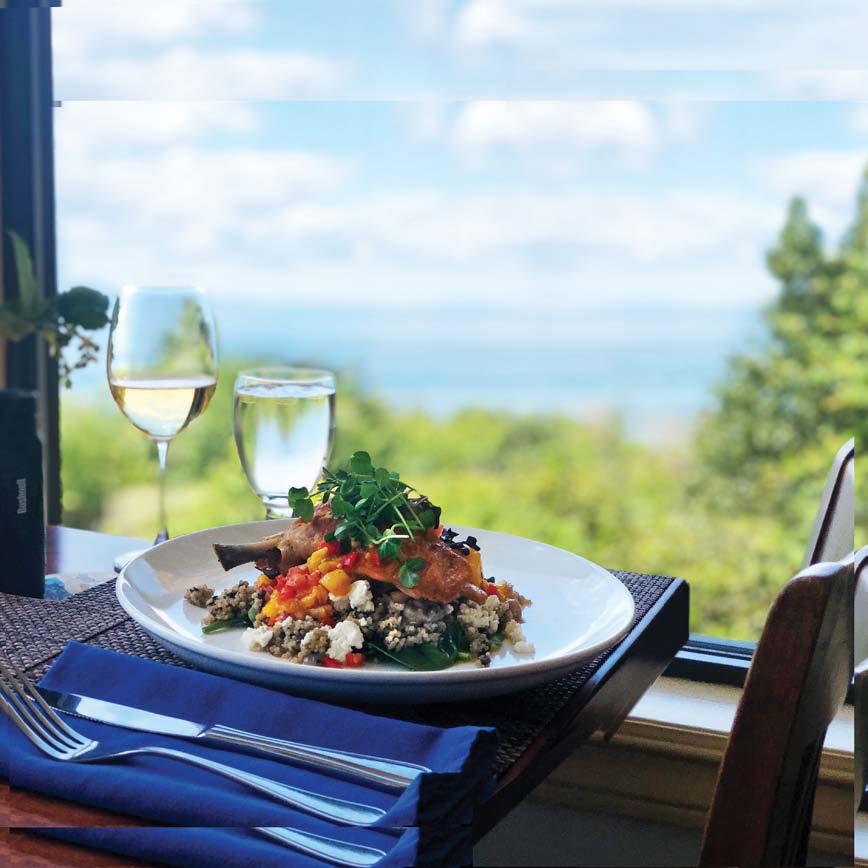


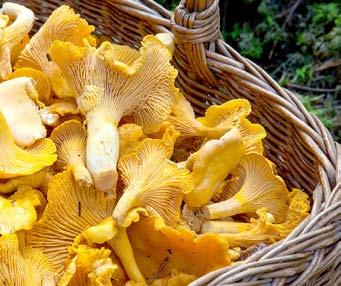
SEASIDE GIN
refreshing as a seaside stroll

sheringhamdistillery.com
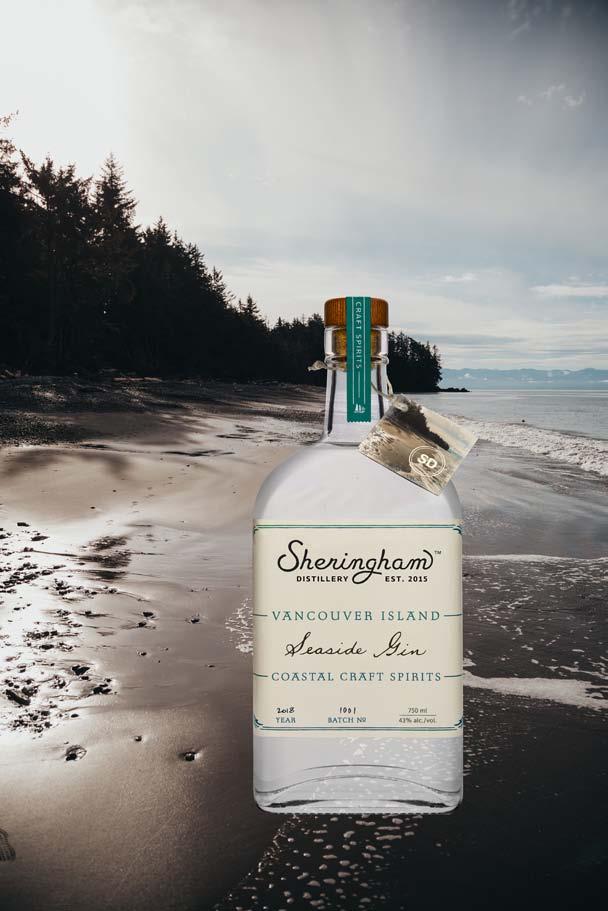
Baby, it’s hot outside. Too damn hot to turn that dang oven on. So don’t! But do stay cool with this no-bake fruit flan. Skip traditional pastry for an easy, press-in-the-pan cookie crust (go gluten-free if you need too), and then fill it with silky coconut cream (dairy-free) and fresh summer fruit.
Tip: Crust is made with coconut oil. Look for the unrefined (a.k.a. virgin) kind. Produced through “wet milling” (centrifuge extraction) vs. bleaching, it has big flavour and holds onto all those good antioxidants and anti-inflammatory benefits better than refined oil.
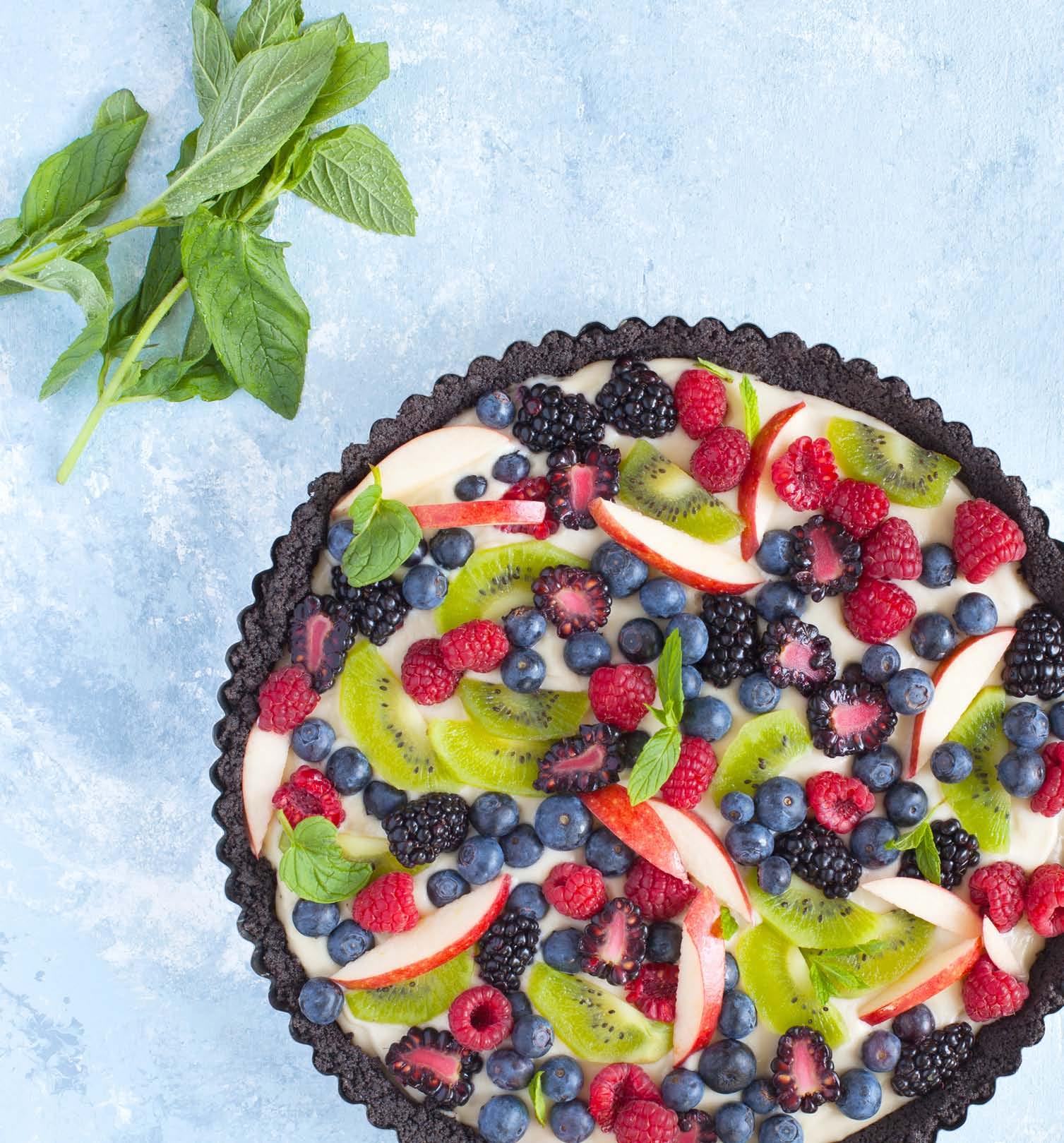 Jennifer Danter
PHOTOGRAPHY
Jacqueline Downey
Jennifer Danter
PHOTOGRAPHY
Jacqueline Downey
Cookie Crust
2½ cups chocolate wafer crumbs or gingersnap cookie crumbs (or sub in your favourite gluten-free wafer cookie)
½ cup unrefined coconut oil, melted
Coconut Cream
2 cans (400 ml each) full fat coconut milk
5 large egg yolks
1 large egg
½ cup granulated sugar
3 Tbsp rum
½ tsp vanilla extract
¼ cup cornstarch
Fruit Topping
2½ cups mixed berries and fruit
In a large bowl, use a fork to combine crumbs with coconut oil until evenly mixed. Press in bottom and up the sides of a 10" or 11" fluted tart pan with removable bottom. Refrigerate while preparing the cream.
In a large wide saucepan, bring coconut milk just to a boil over medium-high heat.
In another large bowl, whisk together yolks and whole egg. Add sugar and whisk until pale yellow and well mixed (to dissolve the sugar). Whisk in rum and vanilla, then cornstarch.
While whisking, gradually pour hot coconut milk into egg mixture until evenly mixed. Pour back into saucepan. Place over medium-high heat; whisk constantly until mixture starts to thicken and bubble, about 1-2 min.
Reduce heat to medium and continue whisking for 3 minutes. Immediately scrape coconut cream into tart shell; smooth to edges. Lay a piece of plastic (or reusable food wrap) directly on surface and refrigerate until cold, at least 3 hours. Coconut cream mixture will thicken as it cools. (Make Ahead: cover and refrigerate up to 2 days.)
Top with fruit just before serving.
Mix it up and use an assortment of blueberries, raspberries, strawberries, sliced peaches, kiwi, apples, sliced grapes or even cantaloupe. Play around with shapes and textures— shave fruit into thin slices, roll ‘em up or slice berries in half so the juices burst.
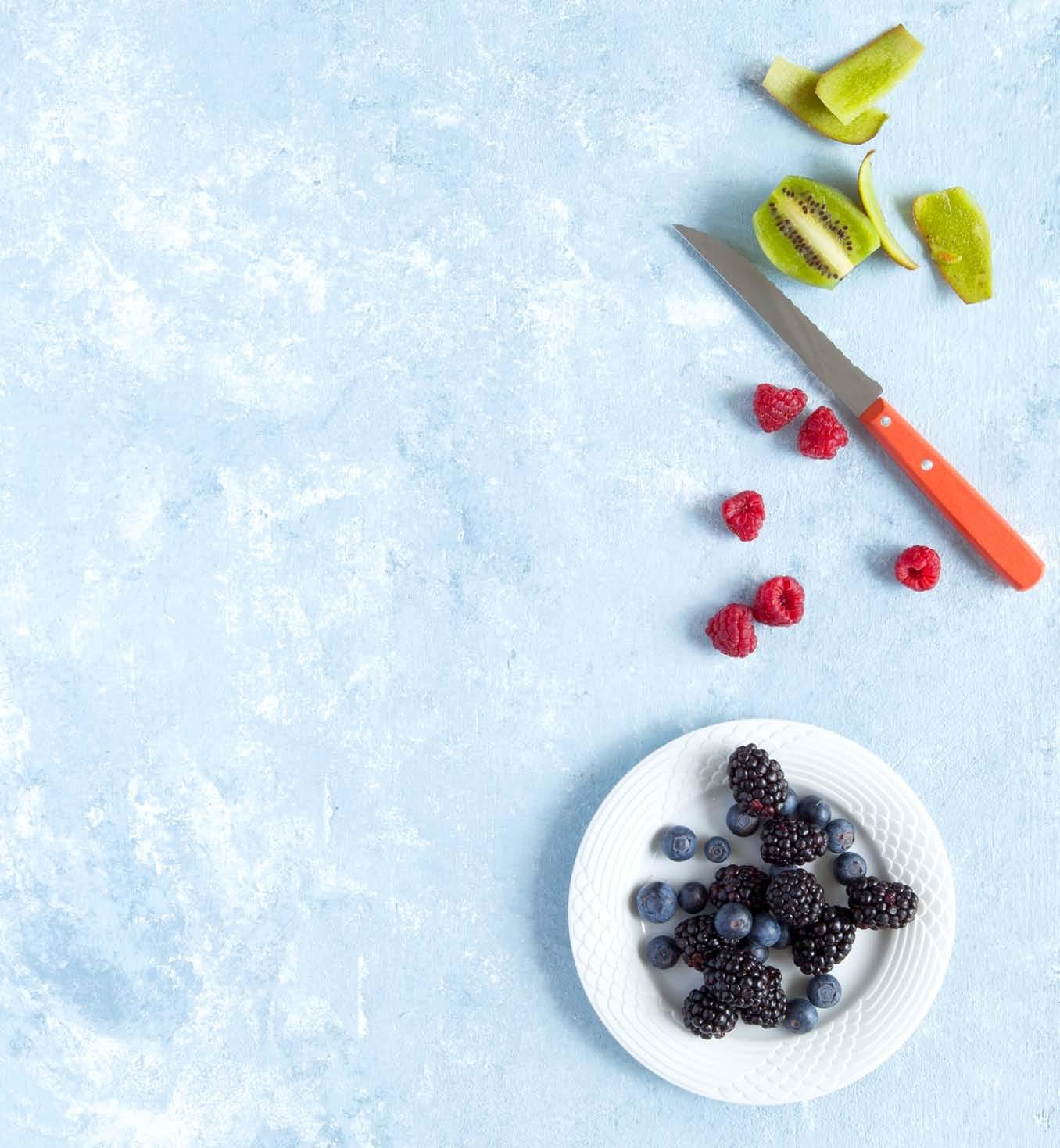
What happens when a farm-to-table lifestyle takes root in your backyard?

Meet the Hendersons—Jens, Beth, and their two “dirt muffins” Sloan and Della.

WORDS
PHOTOGRAPHY
IT ALL STARTED WITH A DESIRE FOR MORE GARDEN SPACE to grow garlic, and a note Jens typed into his phone on the way home from a party late one night. He simply wrote: “I need to buy a farm.” Deciding to escape the daily noise of urban living and move to a quieter life in the country was always in the cards for Jens and Beth, although they thought of it as a hand to be dealt closer to retirement when kids are grown and work slowly shifts from job to a hobby—or hobby farm in this case. However, life rarely sticks to a schedule.
About five years back, when Sloan was three and Della barely three weeks old, Beth remembers humouring Jens on a go-see to their current home near Elk Lake. “He found it by fluke and convinced me to go see it. There was no way we were going to pull the trigger now, I thought. The property was overgrown and wild; the house was authentic 1970s. But even in that state, there was something so peaceful about being on that piece of land.” They fell in love and made a run for it.
Initially, the vision was a garlic farm. They had blossomed into skilled growers on their small city plot and loved cooking with it; what they couldn’t eat, they’d give to friends and family. Seemed like a good plan, an ambitious side project while raising kids and still holding down day jobs. Jens is a realtor with Pemberton Holmes and Beth is a primary school teacher at Selkirk Montessori School. Turns out growing garlic on a grand scale was more labour-intensive than they thought and having one main crop added the risk of losing the whole shebang if pests or rot set in. “The amount of work that goes into that cycle from seed to meal is astonishing.” Since they didn’t want to start selling at markets or turn the farm into a commercial business, there was no point in growing such large quantities (your friends only want so much garlic!).
Jennifer Danter Rebecca WellmanThe pleasure of farming for them is being self-sustainable, truly going from field to table. “Variety allows us to meet our own needs and supply friends, family, and customers with options.” They diversified and focused on what they wanted to eat: tomatoes, carrots, beets, lettuce, kale, artichokes, asparagus, lemons, limes, bush and dried beans, apples, figs, cherries, and berries galore. Plus there are critters! Chickens for eggs, KuneKune pigs for “freezer pigs” (a.k.a. sausages), goats (at one time) and, of course, kittens. Beth suspects more animals are in their future, likely lambs if their daughter Sloan has anything to say about it; she’s joining the 4-H Lamb Club when she turns nine.

The pigs were fun—and naughty—and the kids accepted they weren’t pets, perhaps because they aren’t very cuddly, unlike kittens. Jens admits raising the pigs was another big learning curve. “We jumped right in without perfect fencing, and as everyone who’s had pigs will tell you, they are escape artists.” They never escaped their fate, however, and are now delicious sausages. Before his career in real estate, Jens worked in restaurants and learned how to make sausages with chefs Peter Zambri and Daniele Mereu. Now guanciale and prosciutto are on the menu too. A proud moment this year will be serving a family dinner of roast pork leg with last year’s dried borlotti beans stewed with fresh garden tomatoes—laced with garlic, of course—all from their property.
Work on the farm happens weekends and holidays. Everyone pitches in looking after the animals, planting, weeding, and harvesting. Della knows how to plant seeds and helps transplants the annuals; Sloan proudly tends her own private garden bed filled with veggies she chose. Jens says the girls are an integral part of everything they grow and raise. “The longer we’re here, the more I see their insatiable desire to be involved with the natural world.” The benefits, besides delicious veggies, are bountiful.
Jens and Beth have both been changed by their connection to the land and feel farm life has grounded them in ways city living cannot. The quality of their time spent together as a family has improved, and being outdoors, unplugged from the digital world, brings a pleasant calm. “Victoria is the cleanest, greenest city I’ve ever lived in,” says Beth, “yet the daily urban noise grates on you in ways that I never noticed until I left it. Imagine that feeling when you return from a walk around Thetis Lake or Mount Work. I’m so grateful our backyard makes us feel that way.”
Fresh produce is available for sale at their farm stand, Little Brookhaven Farm. Keep your eye out for garlic scapes and make their pesto (recipe below). Be sure to pick up a jar of house-made garlic salt too. It’s a top seller and goes quickly!


Scapes are the fresh, curly green loops that sprout from the stalk in late spring. They’re uber-garlicky and make a vibrant pesto. Toss with hot noodles or use as a sandwich spread.
10 garlic scapes
½ cup shelled, unsalted pistachios
½ cup grated Parmesan cheese
½ tsp kosher salt
¼ tsp ground black pepper
⅓ cup good quality olive oil
Place scapes, pistachios, cheese, salt, and pepper in a food processor or blender; pulse to a paste. With motor running, slowly drizzle in oil until emulsified. Refrigerate up to 2 weeks or freeze up to 6 months.
BETH HENDERSON AND DAUGHTER SLOAN WITH THEIR GARLIC SCAPE PESTO“Everything old is new again.” It seems that old cliché is apropos when it comes to cottage cheese. The curd, once a staple of bodybuilders and dieters alike, yet often decried by foodies as “bland,” was usurped by yogurt in the late 1980s and has played second fiddle to it ever since. But this scenario is about to change—cottage cheese is poised to make a comeback and even the venerable New York Times has taken notice.
Dairy producers worldwide are now marketing smoother, active culture, smaller-curd cottage cheeses that come in a variety of both sweet and savoury flavours that have mass appeal. This “new” cottage cheese is certainly not bland, nor is it strictly for dieters. Evidence of its improved texture and taste is patent in the results from the 2017 World Cheese Awards, where cottage cheeses from Luxembourg and Spain garnered silver awards and two others from Austria and Spain took home the bronze. Aside from taste, there are some compelling reasons to reintroduce this traditional food back into your diet. Read on to find out what they are.
Bodybuilders consider cottage cheese a go-to-food for good reason. Though Greek yogurt gets kudos for being high in protein, serving for serving ( 1⁄3 cup), cottage cheese contains six more grams of protein than yogurt. What’s more, the type of protein found in cottage cheese is mainly casein, a variety of the macro-nutrient renowned for prolonging absorption of the amino acid leucine, which has been linked to increased muscle-building capacity. This slow release of protein into your blood stream also means cottage cheese can help you sustain energy throughout your day, leaving you less likely to experience fatigue and those dreaded “hangry” attacks that lead to snacking.
The curd isn’t just rich in protein, however, it’s also teeming with key vitamins and minerals. In particular, it’s an excellent source of B-complex vitamins, including thiamine, riboflavin, niacin, Vitamin B6, Vitamin B12, folate, and pantothenic acid. Research shows this family of vitamins can help enhance heart health, digestion, metabolic function, brain function, and more. The good news doesn’t end there. The dairy superfood also houses a rich seam of minerals, most notably, calcium, copper, magnesium, phosphate, selenium, and zinc. While all these minerals are crucial for good health, selenium is critical for B.C. residents as our soil is reputed to be low in this beneficial nutrient. Among its many protective factors, selenium has been shown to increase antioxidant protection in the blood.
If you’re still not ready to welcome the curd back into your diet, consider this—cultured cottage cheese can host important probiotics such as L. acidophilus and B. bifidum, which have been shown to enhance both physical and mental health in myriad ways (always check the packaging to be sure it includes “live and active cultures” and which cultures).
I got my first taste of the “new-and-improved” cottage cheese in Seattle, where I sampled some of Good Culture’s organic, grass-fed cottage cheese. The brand features some very cool flavours with au courant add-ins like chia seeds, kalamata olives, acai berries and more. Though I couldn’t find the brand back in Canada, I was delighted to discover Gay Lea foods has created a line of smooth cottage cheese that is active culture rich and absolutely sublime in both taste and texture. My favourite in its lineup is the salted caramel, but I have found the unflavoured to be the perfect blank canvas for both sweet and savoury dishes. Why not give the curd a second chance and see for yourself?
White, red or rosé, these wines are ideal for summer sipping or as companions to al fresco meals.
Stoneboat Vineyards Pinot Gris 2017 Okanagan Valley $18.00-20.00
If you crave crisp bright acidity, this wine is made for you. Clean and fresh, with subtle citrus, peach and mineral flavours and a bite of mouth-watering acidity that races across your palate but leaves you craving another sip.
Borsao Rosado 2017 Spain $14.00-17.00
One hundred percent garnacha fermented in stainless tanks, Borsao Rosado is crisp and dry with ripe cherry and floral aromas. Medium-bodied with juicy red berry flavours and a dry clean finish. A flowery little delight to quaff and forget.
Mulderbosch Cabernet Sauvignon Rosé 2017 South Africa $14.00-16.00
Mulderbosch just goes to show, you don’t need to break the bank to get a quaffable rosé. One hundred percent cabernet sauvignon from the Central Coast of South Africa, Mulderbosch Rosé is rich, fruity and surprisingly dry. The nose is redolent with juicy strawberries, cherries and delicate rose petal aromas with a note of earthy cabernet sauvignon lurking somewhere in the depths of this monster pink. Nicely balanced with layers of fresh fruit flavours and fresh acidity.
Casa Santos Lima Lab Rosé 2017 Portugal $11.00-13.00
Casa Santos is located about 40 kilometres north of Lisbon. The family has been growing grapes and making wine since the late 19th century, but the wine was sold in bulk to other wineries until their first release under the Casa Santos label in 1996. Very pale pink with subtle floral aromas and red berry flavours. Very fresh with bright acidity and a surprising amount of weight with a firm, dry finish.
Sandhill Rosé 2018 Okanagan Valley $20.00-23.00
A blend of gamay noir (83 percent) and merlot (17 percent) harvested from the Sandhill Estate Vineyard. Gorgeous pink grapefruit colour with delicate strawberry, peach and melon aromas. Very refreshing on the palate with juicy fruit flavours and a touch of sweetness.
Cellier de Monterail Costières De Nîmes 2017 France $14.00-17.00
Cellier De Monterail specializes in wines from the southern Rhône Valley, particularly those of Costières located on the boundary of the Languedoc and Provence. This blend of grenache, syrah and mourvèdre is very tasty with ripe berry flavours, silky tannins and a surprisingly long finish. Highly recommended for everyday use.
Three Thieves Pinot Noir 2016 California $17.00-19.00
The fruit for the Three Thieves Pinot Noir is sourced from Lodi and the Central Coast regions of California. The Three Thieves crafted a lovely Pinot, as the label proclaims, but in all fairness, it is not a true Pinot Noir but rather a blend of pinot (76 percent), syrah (18 percent) and petite syrah (6 percent). With the labelling laws in California, such as they are, this is perfectly legal as long it is 75 percent what the label says it is. Regardless of what’s in it, this California Pinot is a real cracker. Darkly coloured with a generous bouquet of violets, black cherries and toasty oak. Nicely balanced with ample fruit, mouth-watering acidity and fine grained tannins.
Saint Cosme Côtes-du-Rhône 2017 France $23.00-25.00
One hundred percent syrah, fermented and aged in stainless steel. Excellent colour with cracked pepper, black olives, blueberries and smoke aromas. Full-bodied and densely flavoured but not hard or impenetrable—more on the juicy side with generous fruit flavours and a long supple finish. Superb!
Garnacha from Spain without a doubt can be one of the best wine values on the planet today. When it is full-bodied and bursting with ripe black cherry, raspberry and spice flavours, and is blessed with the underlying acidic structure to keep it all in focus, that my friend, is a beautiful thing that should not be missed. So juicy it comes across as slightly sweet but oddly finishes dry.
In April, 2019, chef Sophie Fenlon said goodbye to Victoria and moved to Lyon, France, for a year-long adventure. This ancient city at the confluence of the Rhône and Saône rivers is home to half a million people and has a rich culinary history. Each issue, Sophie will send a letter sharing her experiences with EAT readers.
Read more at: eatmagazine ca /an- introduction-to - letters- from- lyon-to - eat


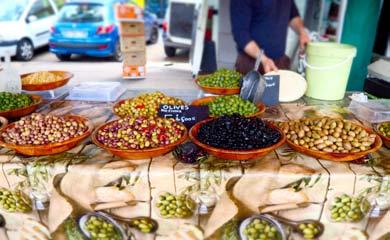
My first months here in Lyon are flying by. Naturally, at first everything is exciting and new, so it’s easy to keep motivated. The biggest lesson for me these months is how long one day can feel when you don’t have a full-time job. In the kitchen environments I have grown up in, time flies by because it’s always a race against the clock throughout the shift. Now my life seems to have flipped, and I’m seeking out different places and activities to fill my day. I knew pretty quickly that I had to find a way to interact with more people here and create some routine—to find balance in this new adventure.
I promptly found a part-time job shadowing one of Lyon’s well-known cooking teachers—assisting her in classes and market tours around Lyon. The school is aimed towards tourists visiting this historic city and the classes are taught in English. They teach not only how to cook the traditional Lyonnaise cuisine but also the rich history of cuisine in France. This position is an excellent opportunity for me to tap into the industry here, network with other chefs, and begin to build relationships with respected suppliers. My favourite part about moving anywhere new is the culture each community brings to the table. Language barriers aside, there have been many eye-opening moments of culture shock already. The French seem to have mastered the three meals a day, with little to no snacking in between. Food is respected and shared, and the locals here are more
likely to go out for a meal than for drinks. The food culture is deeply imbedded in their family history, with recipes and techniques being passed down through the generations. The chefs here are treated like gods and are worshipped more than the football players on the local team.
The government provides support to keep techniques alive, as well as helping protect and preserve local food businesses and farms. Long years of studying are required to become a Cuisinier or Pâtissier, safeguarding the food history and techniques. Their knowledge starts young, and the schools assist in protecting that long-term relationship the country has with the cuisine. I recently learned that children are eating “Radish au Beurre” for their morning snack in class, and for lunch they have a full, three-course meal. From salads to terrines, it’s such a refreshing take on promoting a healthy lifestyle in the young.
My other big eye-opener has been the outdoor markets. They are a major event, whether large or small, and located all over the city. I seek out a new location every morning to make my (now daily) cheese board, acquire a fresh loaf of crusty bread, and find whatever seasonal produce I can muster up for my meals that day. It’s a new experience for me, but clearly not for the locals. The unplanned daily ritual of the daily shop isn’t seen as a struggle or a chore, but just a way of life. Most Lyonnaise grab their baskets or caddies and head over to the market in the morning on their way to work, or perhaps their lunch break. They have a close relationship with the seasons and suppliers and base their meals on what’s available each day. On the weekends, the markets can reach up to four hundred vendors and spread out to 70 different locations across the city. Some markets are open every day of the week, some pop up for just one day, with no promise of when you’ll see them again. Others are more permanent, and I am starting to recognize these faces.
From the Marché de La Croix-Rousse at the top of the hill to Marché St Antoine next to the Saône River, the market stalls are set up from 6:00 a.m. to maximize sales. It’s not all perfect; some vendors are stretching the seasons with imported produce and products from different countries. I’m learning how to tell them apart from the “producteurs”—the locals who aren’t trying to be too fancy. Sometimes the vegetables and eggs are still covered in dirt, the freshness and quality shining through. I can also spot the authenticity of their product just by looking at their hands. Working hands. Making the cheese, collecting the raw milk, harvesting the crop. With so many vendors to choose from, it’s nice to be able to pick out the true producteurs.
I am very fond of my new routine when it comes to buying food, and besides a few household products, I don’t find myself in grocery stores anymore. I feel less overwhelmed by what I should eat for dinner by purchasing my food daily and more cost efficiently at the market. It’s inspiring being outside in the fresh air and talking to the source of the product you’re buying, and the liveliness of it all is the best part of my day. It’s no wonder there is such a close tie between the Lyonnaise and their food.
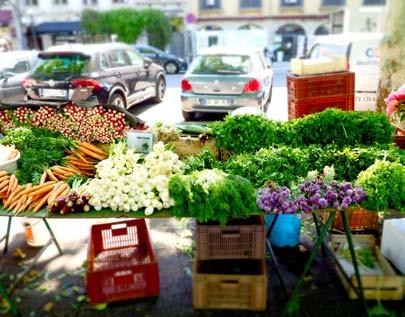
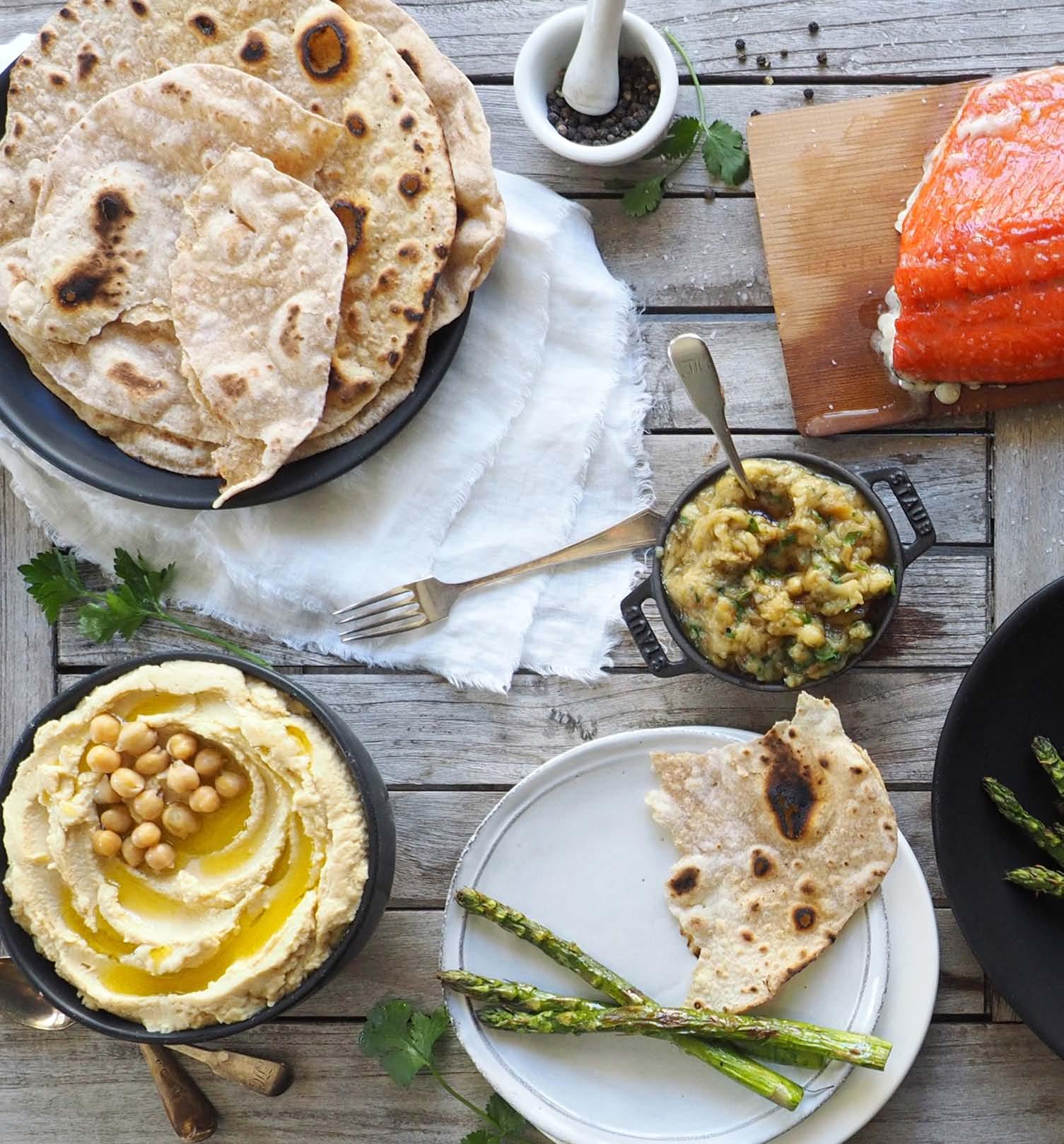

When it’s too hot to turn on the oven, my favourite meal, hands-down, is cedar-planked barbecued salmon with a piquant herb sauce, alongside grilled asparagus. Add lemony hummus, a smoky eggplant dip and hand-crafted tortillas, and you’re celebrating the best of summer cooking, as carefree as the days are long.
You can prepare all but the salmon and asparagus in advance, so there’s no need to fret over last-minute details when your guests arrive. Or, if you can handle a little chaos in the kitchen, pass out the aprons and let your guests participate in the cooking. Entertaining is far more relaxed and light-hearted when friends help out. Just be sure to have a game plan with ingredients washed and portioned, and with equipment in place, otherwise dinner can go sideways pretty fast. It helps to have someone in charge of cleanup and dishwashing (in our house that would be my husband) especially with “all hands on deck.”
You can, for example, prepare the tortilla dough in advance and have someone roll out the dough while another person cooks the tortillas. Making a simple dip or dressing can be a happy revelation to someone who’s never attempted it before. Guests who’d rather not get their hands dirty can still contribute by snapping off the tough ends of the asparagus stalks. You’d be surprised how simple tasks can break the ice and bring a group together.
However you chose to entertain, your guests won’t be disappointed with cedar-planked salmon grilled to perfection over low heat. Yes, low heat. Although barbecues bring to mind flames and high heat, my preferred method for cooking salmon is over a low gentle heat, about 250°F, a technique that renders the fish incredibly
moist and succulent. If your barbecue doesn’t come with a heat gauge, simply place an oven thermometer on the grill. If you don’t have a cedar plank, available at most grocery stores, a small baking sheet will do too (although without that hint of cedar, of course). The key is to achieve a low steady heat (with my barbecue that means cracking the hood open half an inch, just enough to wedge in a baking sheet). If you don’t own a barbecue, you can achieve the same delicious results in a low 250°F oven.
Either way, you can determine the fish’s doneness by keeping an eye on the milky white beads (coagulated protein) that appear of the surface, first on the tail end and thinner side of the fillet. I prefer my salmon slightly undercooked, so I remove it from the heat, and tent it with foil, before the entire fish is dotted with the milky residue. This way everyone gets to choose their favourite cut: thin opaque portions for those who enjoy their fish well-done, and the thick belly, slightly translucent, for those who prefer their fish medium to medium-rare. Coho or sockeye are excellent salmon choices, but steelhead trout, often mistaken for salmon, works beautifully too.
If you’ve never enjoyed handcrafted tortillas, spoil yourself just this once. The dough takes little effort and there’s no special equipment involved, other than a rolling pin and hot grill or cast-iron pan. And, like most flat breads, tortillas are best served fresh. What better way to enjoy creamy hummus and a smoky eggplant dip than with warm, slightly charred, just-offthe-grill tortillas?
Host a kitchen party this summer and discover the joy of communal cooking. Because food always tastes better when shared with friends.
Lemony Hummus
Makes about 3¼ cups
If you’d like to garnish your hummus with whole chickpeas, as pictured, set aside a handful before you process them. Hummus can be prepared and refrigerated a few days in advance.
2 (540 mL) cans chickpeas*
½ cup lemon juice, about 2 lemons
¼ cup tahini (available in the nut butter section of most grocery stores)
¾ cup water, plus more as needed
1½ tsp kosher salt
1 tsp finely minced garlic, about 1½ cloves
1 tsp freshly ground cumin, optional
Optional garnish
Olive oil and a few whole cooked chickpeas
Place ingredients in a food processor or blender and process until smooth, scraping down the sides with a flexible spatula as necessary. Taste and season with additional lemon or salt if desired. Garnish with whole cooked chickpeas and a generous drizzle of olive oil.
*If using dried beans, rather than canned, soak 2 cups picked-over chickpeas, preferably overnight, with
1 Tbsp baking soda and enough water for the beans to double in size. Drain, rinse and transfer to a saucepan with about 5 cups water and ½ tsp baking soda. Bring to a boil, reduce the heat and simmer until the beans are fork-tender, about 30 minutes. Drain, rinse and proceed with the recipe. For a super creamy hummus, rub off the outer husks of the chickpeas with your fingers before proceeding with the recipe. (Best-done while in a contemplative mood when time is of no concern.)
Makes 8 tortillas
Cooked tortillas can be frozen then thawed and reheated before serving.*
1 cup all-purpose flour
½ cup whole wheat flour (if not available, use all-purpose flour)
1 tsp kosher salt
¼ tsp baking powder
2 oz (¼ cup + 1 tsp) lard or vegetable shortening
4 oz (½ cup) warm water (the dough is difficult to manage with cool water)
Whisk together the flour, salt and baking powder in a large bowl.
Cut the lard or vegetable shortening into the flour mixture using a pastry blender or fork, until the mixture resembles coarse meal.
Stir in the warm water with a fork until a shaggy dough forms. If the mixture is too dry, add additional warm water, 1 tsp at a time.
Turn the dough onto a lightly floured surface and knead until smooth and soft, about 2–3 minutes. Shape the dough into a ball, cover with plastic wrap and allow to rest at room temperature for at least 30 minutes.
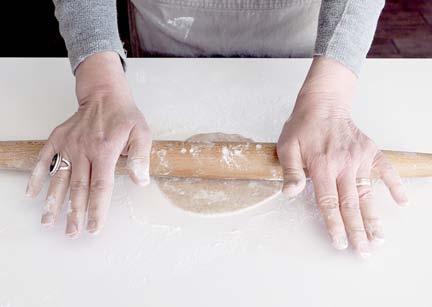

Divide the dough into 8 equal portions and form into balls.
Using a rolling pin, roll each ball on a floured surface and shape into a thin circle about 8 inches in diameter. Heat a large non-stick skillet over medium heat. Place a tortilla in the hot dry skillet until it bubbles and puffs, about 30 seconds. Pierce with the tip of a knife any large bubbles that form. Flip the tortilla over with tongs, and cook for another half minute or so until brown spots appear on the bottom. Be careful not to overcook them, otherwise they’ll become stiff and difficult to fold. Transfer to a plate and cover with a clean tea towel. Repeat with the remaining dough. The tortillas can be wrapped in foil and reheated on the BBQ grill.
*If freezing, separate the cooled cooked tortillas with parchment paper and store in freezer bags.

Herb Dressing
Makes about 1 cup
This zesty dressing is best enjoyed when prepared an hour or two before serving. You can, however, ready all the ingredients in advance and toss them together before serving.
3 cups finely chopped leafy herbs* (cilantro, parsley, mint, etc.) about 3 bunches, stems removed
2 Tbsp lemon juice, about ½ lemon
1 jalapeño or serrano pepper, seeded and finely chopped (use more if you enjoy heat)
1 tsp finely minced garlic, about 1½ cloves
3 anchovies, rinsed and finely chopped
¼ cup chopped walnuts, almonds or pistachios
½ cup plus 2 Tbsp mild vegetable oil, such as grapeseed oil, plus more for serving
*Stay away from strong-tasting herbs like rosemary and thyme.
Combine all the ingredients in a small bowl and mix well. Alternatively, toss everything but the nuts in a food processor and purée until smooth, scraping down the sides of the bowl with a spatula. Add the chopped nuts. Taste and season with additional salt or lemon, as desired. Drizzle with additional oil just before serving.
Smoky Eggplant Dip
Makes about 11/3 cups
This dip can be prepared days in advance. It pairs beautifully with soft cheese and creamy hummus. Similar to baba ganoush, but without tahini, this flavourful dip gets its smoky essence from charring whole eggplant over an open flame. This technique works beautifully on a gas stove. (Unfortunately, oven roasting and barbecuing do not achieve the dip’s requisite smoke flavour.) For easy cleanup, place foil under your stove-top grates before you get started.
1.5–2 lb eggplant, about 2 medium
1 tsp finely minced garlic, about 1½ cloves
½ tsp kosher salt
1 Tbsp extra virgin olive oil, plus more for serving
1 Tbsp lemon juice
2 Tbsp chopped cilantro or parsley
Using a skewer or tip of a knife, pierce several holes on all sides of the eggplant, about 2 inches deep.
Place each eggplant directly on a gas burner grate, over a medium-high flame, turning the eggplant with
Cooked tortillas ready to reheat or freeze Tortilla dough portion ready to roll outtongs as necessary, until completely charred, softened and deflated. This can take up to 10 minutes. Transfer to a bowl, cover with plastic wrap and set aside to cool, reserving the liquid that accumulates in the bowl.
When the eggplants are cool enough to handle, cut each in half lengthwise and scoop the softened flesh into a clean bowl, being mindful to avoid any small bits of charred skin. Add the garlic, salt, oil and lemon juice and stir to combine. Strain the eggplant liquid and drizzle about 1 Tbsp of the smoky liquid over the mixture. Taste and season with additional lemon, garlic or salt as desired.
Just before serving, add the chopped herbs and drizzle with a generous glug of olive oil.

Grilled Asparagus
Serves 6
2 bunches fresh asparagus, about 1 lb each
1 Tbsp vegetable oil
Kosher salt
1 lemon
Preheat the barbecue to medium-high. (A stove-top grill or 400°F oven works too.)

To trim the asparagus: hold a spear (one hand at each end) and bend the stalk until it snaps at its natural breaking point, about 2–3 inches from the base.
Lay the trimmed asparagus on the grill, brush with oil and cook, uncovered, about 9–10 minutes or until slightly charred. Turn the asparagus over with tongs, close the lid, and continue to cook, until tender, about 5 more minutes, depending on the thickness of the spears.
Transfer to a serving platter, sprinkle with kosher salt and a squeeze of lemon juice.
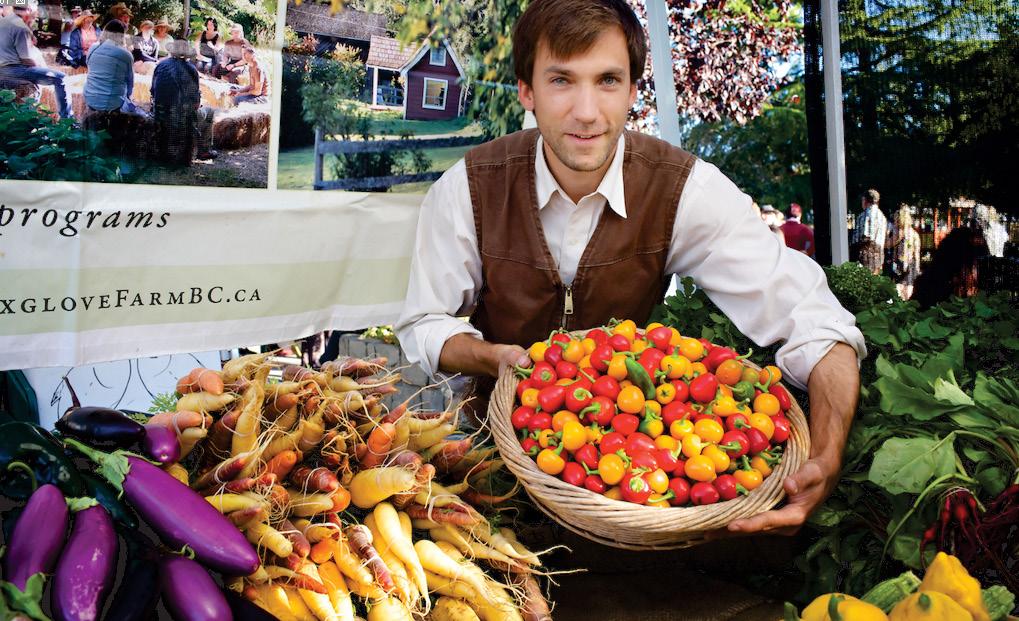
Salmon



One side of salmon (1 kg or 2.2 lb) serves 5 Plan on 200 grams (7 oz) raw salmon per person for an entrée and 85 grams (3 oz) for a snack. (Fish shrinks about 20 percent when cooked.)
1 kg (2.2 lb) salmon, skin intact, pin bones removed
1 cedar plank, soaked at least 15 minutes (if not using a cedar plank, use a baking sheet)
1 Tbsp vegetable oil



¾ tsp kosher salt or ½ tsp table salt




Bring the fish to room temperature.
Preheat a barbecue to 250°F or the lowest setting possible. (A 250° oven works too.)
Place the fillet on the soaked cedar plank, skin-side down and brush with oil. (If your salmon is larger than your plank, place a baking sheet under the plank when grilling.) Brush the fish with oil and sprinkle evenly with kosher salt.
Place the planked salmon on the grill and close the lid, being mindful to monitor the heat. If the heat starts creeping up, crack the hood open half an inch. (On my barbecue, I wedge a baking sheet between grill and lid to better control the heat.)
If you prefer your salmon slightly undercooked in the centre, as I do, remove it from the heat and tent it with foil before the entire fish is dotted with the milky white liquid (coagulated protein) that surfaces as the fish cooks. My barbecue cooks a kilo of salmon to medium-rare, at its centre, in about 30 minutes. All barbecues are different so keep an eye on the milky residue and test for doneness by inserting the tip of a knife in the thickest portion of the belly: medium to medium-rare is slightly translucent and will not flake as easily as the thinner portions. When in doubt, taste!
Cue the playlist and head off on this tasty island road trip to the Parksville-Qualicum Beach area.

WHEN THE WEATHER HEATS UP, the beach calls. This island is blessed with some of the best stretches of sand in the world, and a summer drive up to the parks and broad beaches around Parksville and Qualicum Beach makes a delicious staycation—especially when you stock your camp or condo kitchen with the local food and drink.
From award-winning craft breweries to organic farm produce, artisan bakers and creative young chefs, there’s much to discover among the oceanfront resorts and bucolic rural routes.
So hop in the car, cue the playlist, and enjoy the tasty discoveries on an up-island road trip. Don’t forget to pack the cooler!
Six-Pack Summer
Barley sandwiches are a major summer food group and, with the BC Ale Trail guide in hand, we’re ready for some sudsy pit stops. We’ve finished singing “99 Bottles of Beer” and are hankering for lunch by the time we see the turnoff to Cedar and the Crow and Gate Pub near Nanaimo. This rural watering hole looks like it was plucked right out of the English countryside, with its rustic timbers and roaring fires, but was actually built here in 1972, the first “neighbourhood pub” licence granted in BC. There are several local craft beers on tap and a classic pub menu—I opt for their famous crab cakes, though the pan-fried oysters, Scotch egg ploughman’s lunch, and towering steak and kidney pie look equally enticing.
Before leaving Nanaimo, we make a few stops to fill the growlers. At its downtown brewery and taproom, White Sails Brewing serves up award-winning Mount Benson IPA and refreshingly hoppy Trestle Session ISA. Wolf Brewing Company has a fancy new tasting room, too, offering sample
flights, growler fills, and full draught service. We linger for an enlightening chat with brewmaster Kevin Ward, enjoying his great beer and artful labels—from the racy Golden Honey Ale, featuring artist Alex Walton’s magical humpback whales, to Sue Coleman’s watery rendition of Sandcut Beach gracing their Wee Heavy Scotch Ale. Parksville’s Mount Arrowsmith Brewery won the inaugural Brewery of the Year title at the BC Beer Awards in late 2017 (after just six months of operation), so it’s a must-see for me. We nab a seat in their busy taproom to try brewer Dave Woodward’s award-winning creations. His Arrowsmith Blonde—named Best Golden Ale in the World Beer Awards last year—is just what we need for a day at the beach and to wash down a mess of their tasty wings.
A quick cruise up the Old Island Highway to Qualicum Beach uncovers another hoppy passion project, tiny Love Shack Libations. The namesake B52s classic is as bouncy as owner Dave Paul, who’s pouring and proselytizing when we arrive. This nano-brewery is a rustic gem but is only open for tastings twice a week (Wednesday evening and Saturday afternoon or by appointment). We crowd in with the locals and belly up to the live-edge tasting table to sample one of Paul’s rotating creations, smitten by his citrusy Witty Otter IPA made with local organic hops, and a round, malty Crafty Cream Ale.
There’s actually no train to Parksville (anymore), but that old pop tune is rattling around in my brain as we pull into this oceanside enclave.
It always feels as if I’m slipping back to a simpler time when
we arrive here in the land of sandcastles and sunshine. It’s the kind of place to put the top down—or open the sunroof, in my case—and crank the classics while cruising between rounds of miniature golf and martinis.
With the ongoing building boom here, Parksville-Qualicum is now one contiguous beach town. It’s a retirement mecca and a playground for all ages, abilities, and interests, with spectacular old-growth forests, hidden spas and gardens, and winding scenic roads to drive. You can rent a paddleboard or kayak, or just walk the sandy beaches at low tide and relax to the rhythm of the waves.
This is also a popular destination for food lovers, and a place I come for both dining out and cherry picking local ingredients for the pantry.
There’s a funky, organic side to these long-time retirement communities. Apparently many retirees just like to get their hands into the dirt growing food, or into the kitchen making it.
You’ll see Nanoose Edibles’ organic greens on several local menus, and I head down the backroads along Nanoose Bay to see pioneering growers Lorne and Barbara Ebell. With the help of young horticulture students and wandering WWOOFers, these friendly farmers harvest some of the tastiest fruits and vegetables around. Visit their farm shop or come for their family U-pick weekends for berries, salad greens, peas, and other incredible edibles.
Just down the road, there’s the new Rusted Rake Farm, a cosy farm-to-table café for coffee or lunch and homey baked goods. Another enlightening place to connect with local food is
WORDS + PHOTOGRAPHY Cinda ChavichMorningstar Farm, home to Little Qualicum Cheeseworks and three generations of the enterprising Gourlay family. Not only do they raise happy cows, free-ranging over rolling pasture at the foot of Mount Arrowsmith, but they also make a variety of popular cheeses and recently installed Canada’s first milk-on-tap dispenser on the farm, where you can fill up a jug with their own whole, non-homogenized, grass-fed milk.
It makes an educational stop. We watch their cows being milked in the high-tech robotic milking parlour, peer into the cheese-making room, and sample a variety of their cheeses (and fruit wines) in the farm store. Luckily, it’s Thursday afternoon, and we’re just in time to buy their freshly made cheese curds—perfectly squeaky for poutine, but addictive for snacking, too.
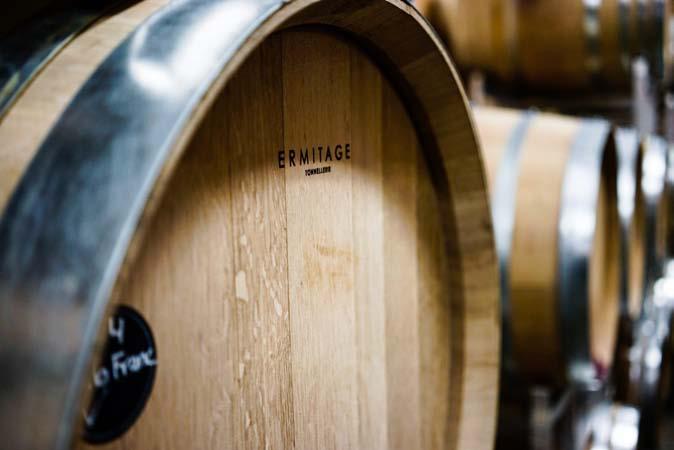
There are more local growers and makers to discover at the Qualicum Beach Farmers’ Market (Wednesdays and Saturdays in the summer season). We sample exotic spice mixtures, pick up beautiful Bakewell Tarts and oatcakes from the Island Highlander, admire the colourful organic bounty from Salt & Harrow farm, and leave with freshly made Ixim corn tortillas, figs and bagels.



Good Morning Sunshine


Holidays require a hearty morning meal to fuel the day—or at least some freshly baked bread for your picnic basket—so we plan to break the fast in style.

Our first stop is Parksville’s Bread and Honey, and a seat at the big communal table. It’s hard to decide between the lovely pastries (pain au chocolat, almondine croissant, honey madeleines) and the big breakfasts, but we’re tempted by the classic bennie with thick slabs of house-cured back bacon and killer hash brown cakes. If brunch/lunch is your jam, the fried chicken waffles (or fried chicken sandwich with house-made potato chips) are equally seductive.
My other early bird destination is Wild Culture Artisan Bakery, on the outskirts of Qualicum Beach, where the chewy, organic sourdough bread is slowly fermented and shaped by hand and made with organic flours milled on site. We leave with a loaf of Country French, Walnut & Fig, and Jalapeño Cheese bread, and big spelt cinnamon buns. If you plan to visit on a Friday, call ahead to order one of their favourite pizzas—on the organic rye, spelt and Red Fife sourdough crust—ready-to-eat or unbaked to take home.
At the Qualicum Beach Farmers’ Market, look for Elsa Heeps and her Elsa’s Artisan Bakery table, heaped with the beautiful bread, bagels and pastries that emerge from her home brick oven. If you’re counting carbs or avoiding gluten, try her seedy Nut Bricks, perfect to slice thin to top with smoked salmon and cheese.
You’ll be glad for that camper kitchen or fully kitted condo when you get to the Old Country Market (a.k.a., Goats on the Roof) in Coombs, a kid-in-a-candy-store kind of gourmet food shop. Yes, adorable goats are cavorting on the grassy rooftops, but inside this sprawling shop you’ll find a world’s worth of spices, sauces, and condiments alongside a cheese case loaded with local and

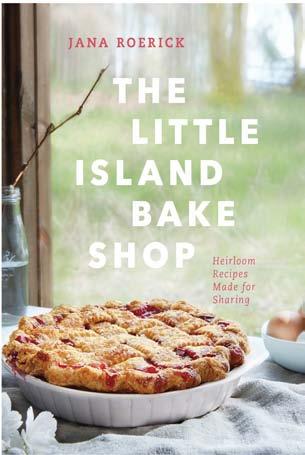





Once you’ve been “on island” you’ll never want to be “off island” again. From pristine beaches to breathtaking views, goat picnics to people picnics, farmers’ markets to farmers’ fields, and spectacular views on the trails from Mount Maxwell to Ruckle Park, come prepared to sample everything. The food, the drink, the people, the views, the restaurants, and the unique shopping. You may just want to call this beautiful island your next home.


import examples, a deli with island-made charcuterie, and a treasure trove of locally smoked and candied salmon.

What began as a rural market is now a full-fledged, roadside attraction, complete with shops selling garden pots, Chinese antiques, surfer fashions, ice cream, and souvenirs, all designed to entice tourists to pull in. But whether you’re looking for bargains on imported olive oil and Parmigiano Reggiano, fresh fruits and vegetables, or an Italian meal at Cuckoo Trattoria and Pizzeria, it’s worth a stop.
A diversion further north along the coastal highway uncovers the Tidal Taco Shack in Qualicum Bay, famous in these parts for their crispy fish tacos. It’s literally a tiny shack on the beach, so come early (they often sell out), and plan to pull up a picnic table, catch some rays, and enjoy the seaside wait.
This area is also ground zero of the famed Fanny Bay Oysters, and we head to their seafood shop at the Buckley Bay ferry terminal to grab some fresh bivalves, candied salmon, and crab. Foodies who want to learn more about sustainable shellfish farming should detour to the Deep Bay Marine Field station, an architecturally impressive facility run by Vancouver Island University (VIU) for shellfish research. They have a cool aquarium and touch tank (it’s your chance to get up close and personal with a giant geoduck clam), and offer workshops for budding foragers and fishers.
More fresh seafood is found at the fish market next to the commercial fishing dock at French Creek. Homegrown retailers Naked Naturals and Eat Fresh Urban Market also serve up local food finds for the picnic basket, including house-made salads and baked goods.
Under the Boardwalk
We may not be able to venture below the boardwalk in Parksville but, after a day in the car, it certainly beckons for a seaside stroll.
We’ve booked into The Beach Club Resort and, from our waterfront terrace, we admire the views across the sand to the Coast Mountains and watch all manner of humanity and pets pass by. It’s the perfect perch for a casual cocktail before we head out for more food.
The Beach Club’s Pacific Prime restaurant is known for its Ocean Wise seafood menu and award-winning wine list. Whether it’s the candied smoked salmon and Dungeness crab breakfast omelettes, the Beach Club Chowder or the Coastal Tasting Plate with mussels, clams and VIU-raised sturgeon, BC seafood is on the plate.
Realm Food Co. is a locavore dining destination in Parksville. Chef James Hannah and partner Kyla Campbell re-invented this local diner to “raise awareness of eating locally and re-establish a connection between farmers and diners,” and their high-concept comfort food features organic and sustainable ingredients from nearby farms. It’s casual, friendly to vegan and GF diners, and a great place to see local musicians perform.
I’ve come for their fish tacos—rice-tempura-battered ling cod, marinated tomatoes and sprouts, piled on a local Ixim tortilla—but we also try the Spicy Surfside Roll of seared albacore tuna, a colourful plate artfully garnished with flower petals. There’s house-made

bone broth, kombucha on tap, and a good selection of island wines and craft beer, too.

Another tasty stop on my list is Island Sodaworks in Qualicum Beach. Set in a bay of the old town fire hall, this quirky restaurant, with its curated flea-market décor and vintage china, specializes in all things foraged and fermented. The eclectic food springs from the imagination of creative cook Mandolyn Jonasson—think wild miner’s lettuce and chickweed salad or naturally fermented bergamot and lemon soda, as fresh and bubbly as its maker.
This is zero-waste, scratch cooking. In Jonasson’s large open kitchen, she is rendering her own lard, milling organic grains for fresh bread, culturing fermented sodas, and simmering bone broth.
“I am 100 percent locally sourced,” Jonasson tells me, pointing to the pastured chickens she raises herself, the wildcrafted greens, and the homemade cheese, curried kraut, and harissa devilled duck egg on today’s Forager’s Board menu.
We turn the car back toward Parksville for a light nosh at Tigh-Na-Mara Resort, a cocktail and a thin-crust pizza from the new stone oven in the cosy lounge.
Tomorrow’s dining will be equally aspirational. We’ve signed up for Tigh-Na-Mara’s Dip and Dine package—a marathon of “endless tapas” designed exclusively for spa guests. After an invigorating dip in the mineral pools at the resort’s Grotto Spa, we don our thick terry robes and settle in for a late lunch at their Treetop Tapas & Grill. This three-hour, 17-course marathon runs the culinary gamut, from panacotta wrapped in smoked salmon, and raw tuna with wasabi mayo, to sweet potato, blue cheese, and leek puffs on local Nanoose greens, bison carpaccio, soba noodles with edamame in miso broth, and beets with goat cheese and blood orange vinaigrette.
With a glass of bubbly Cipes Brut in hand, it’s the perfect way to kill an afternoon.
The beach body can wait for another day—dieting be damned!
Walking On Sunshine If You Go:
The communities of Parksville and Qualicum Beach are about 150 km north of Victoria.
Plan your beach time to coincide with the lowest tides, and you’ll be mesmerized by the sheer open space of sea and sand. Hike among the tall trees in the shady Heritage Forest in Qualicum Beach, or splash in the crystal clear swimming holes at Englishman River Falls. Learn more about restaurants, accommodations, and local events through Visit Parksville Qualicum Beach www visitparksvillequalicumbeach com. You can camp near the beach at Rathtrevor Beach Provincial Park, pull into a private RV park, or book into one of the oceanside resorts like Tigh-Na-Mara Seaside Spa Resort tigh- na- mara com, with its rustic cottages, oceanview rooms, and spa bungalows, or rent a luxury condo suite at The Beach Club Resort, right on Parksville Beach www beachclubbc com/accommodations
CRAB CAKES AT CROW AND GATE PUB
Light in texture, vibrant in flavour—and easy to make.
This flourless cake has a moist, light texture and a wonderful fresh taste. When paired with a dollop of Whipped White Chocolate Cream and a splash of Orange Caramel, it is an unforgettable, delectable pleasure.

The recipe uses the whole orange. Cooking them until very tender and crushing them whole extracts all the flavours and oils from the peels. Rich in protein, it perfectly complements a meatfree menu.
It will not rise much, and you may wonder if it will ever solidify in the oven—don’t worry, it will. If you make it for guests, sprinkle a little sugar over top and decorate with colourful edible flower petals like begonias, calendulas, pansies, nasturtiums, and carnations.
This cake can be enjoyed with a sweet white wine or a hot drink, at any time of the day; perfect for a sunny patio break.
Orange and Almond Cake
Makes 8 to 10 servings
2 medium organic oranges with thin skin
6 farm-raised eggs
1 cup sugar
1½ tsp baking powder
1½ cup organic powdered almonds or fine almond flour
Icing sugar (optional)
Brush and wash the oranges and then put in a saucepan with enough water to cover them. Bring to a boil, reduce heat, and
simmer, covered, for 1 hour. Add more water if necessary.
Drain the oranges, reserving a ½ cup of orange-flavoured water for the Orange Caramel, and let them cool down completely. Remove both ends, keeping the peel on, and cut into quarters. Remove the seeds, if needed.
Preheat the oven to 350°F (180°C). Line the bottom and sides of a 9-inch springform cake pan lined with parchment paper.
Put the orange wedges in the bowl of a food processor. Crush until a homogeneous purée is obtained. Measure 1¼ cup of mashed oranges and keep aside.
In a clean food processor, beat eggs and sugar for 2 to 3 minutes. Add the baking powder and process until the mixture thickens and turns to a pale yellow colour. Add in a third of the almond flour and a third of the orange purée and process. Repeat until all flour and puree have been added.
Transfer the batter to the pan and place in the oven; cooking will take about 1 hour. Bake for 45 minutes, then cover with aluminum foil (so the top does not overcook) and continue cooking for 10 to 15 minutes. The cake is ready when you can insert a knife tip in the middle and the knife comes out clean.
Allow to cool completely before removing from the pan.
When serving, sprinkle with icing sugar and decorate as desired.
Orange Caramel
2 Tbsp butter
Zest of 1 organic orange, julienned
1 cup sugar
½ cup water (kept from the cooking of the oranges)
In a saucepan, sauté the butter and orange zest over low heat. Add the sugar until it is slightly coloured.
Pour in the water before the mixture becomes too dark. Simmer for 3 to 5 minutes to reduce.
Whipped White
Chocolate Cream
170 g (6 oz) white chocolate, chopped
1 cup whipping cream
¼ cup sour cream
Put the white chocolate in a mixing bowl. In a small saucepan over medium-high heat, bring the whipping cream to a boil, then immediately pour over the chocolate. Wait one minute before combining the mixture to allow the chocolate to melt.
Mix until the texture is perfectly smooth, cover with plastic wrap and refrigerate for 4 hours.
Using an electric mixer, whisk the white chocolate cream mixture to obtain soft peaks. Add the sour cream and whisk a little more. Keep refrigerated till ready to serve.
RECIPE + STYLING + PHOTOGRAPHY Isabelle BulotaIt is often said that breakfast is the most important meal of the day, but have you ever considered why that is? Adrien Sala catches up with Jessica Duncan of Singing Bowl Granola to learn about her mission to feed folks breakfast.

AT ONE TIME OR ANOTHER we’ve all experienced the trouble that comes from a hungry belly. Sometimes it’s a laughable bad mood, otherwise known as being “hangry,” which can generally be pacified by a slice of pizza or an apple. But real hunger is more sinister than that. It can affect your cognitive ability, making it hard to concentrate on anything other than the empty feeling in your stomach. It weakens you, putting you at a disadvantage from the get-go, affecting your mood, motivation and capacity for play. Hunger can be all-consuming, so starting your day with some sustenance is essential—and one of the best ways to do that is with a high-protein bowl of nutritious granola.
Enter Jessica Duncan, owner of Singing Bowl Granola and the driving force behind the Porridge Project, Healthy Cookies for the Homeless, and Giving Granola, three separate initiatives that aim to bring nourishment and grains to those who might otherwise not have them.

On a recent spring day, I caught up with Jessica at her production facility on Bay Street. The first thing I notice about her is her energy, likely fuelled by some of the hand-crafted granola she began selling at James Bay Market in 2011, and which can now be found in stores throughout Vancouver Island, the Gulf Islands, and even on the mainland. This ex-school teacher projects confidence and passion. And she’s very direct about her perspective when it comes to feeding people.
“In business I feel that we have a responsibility to make sure we’re not just catering to the rich,” she explains. “From day one, I was giving food or money to the Mustard Seed from my sales.”
The granola itself is made with organic oats from Canadian farmers, as well as many other organic and Canadian ingredients, and has several music-themed offerings, including my personal favourite, Morning Chorus, which has dried fruit, nuts and seeds, and just a touch of maple syrup and honey.
If you look beyond the deliciousness, however, you can see that the idea of giving back to the community permeates Duncan’s business—to the point that making money for herself is an afterthought. “I’ve really had to evaluate my definition of success,” she says. “My definition of success is that I am doing good for my community. I still wake up every morning and there’s a roof over my head. There’s food in the fridge. My kids are healthy. I’m good. And I’m able to use this as a community builder.”
Part of Singing Bowl Granola’s ethos is to help people avoid unnecessary hunger, and Duncan pours her time and energy into several projects that do just that. One of the most visible is the Porridge Project—an initiative that provides healthy porridge for young students at no cost, in several SD61 schools. As a former teacher, childhood poverty deeply concerns Jessica Duncan. Since 2016, with support from the Blue Heron Advisory Group, Singing Bowl has delivered roughly 9,000 servings annually to students who are coming to school hungry, thus removing the disadvantages associated with hunger, allowing them to focus on learning and play.
Another initiative is Giving Granola, one of Singing Bowl’s products, that was created using organic tropical dried fruit from Fruandes, a sister company to Level Ground Trading, in Colombia. Singing Bowl Granola shares a part of its profits from sales of Giving Granola with the women who work at Fruandes, to help them with their housing needs and other challenges in this developing country.
And what is life without good cookies? In support of Reverend Allen Tysick of the Dandelion Society, Jessica has started donating freshly baked oatmeal cookies several times a month for Reverend Al to distribute to the homeless members of the community.
While it’s true that Singing Bowl Granola and Jessica Duncan may not make millions of dollars from the sale of artisan granola, there’s little doubt she is rich in many other ways. For a full list of locations where you can purchase Singing Bowl and help support her initiatives, visit www singingbowlgranola com





Soak up the sun while enjoying the breathtaking views on Masters Patio. Offering fresh, local West Coast edibles and delicious refreshments, this is the spot to be this summer.
